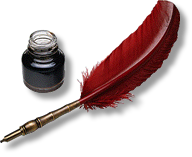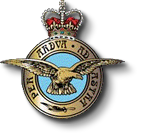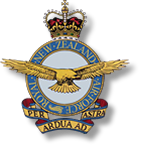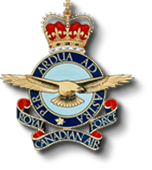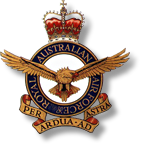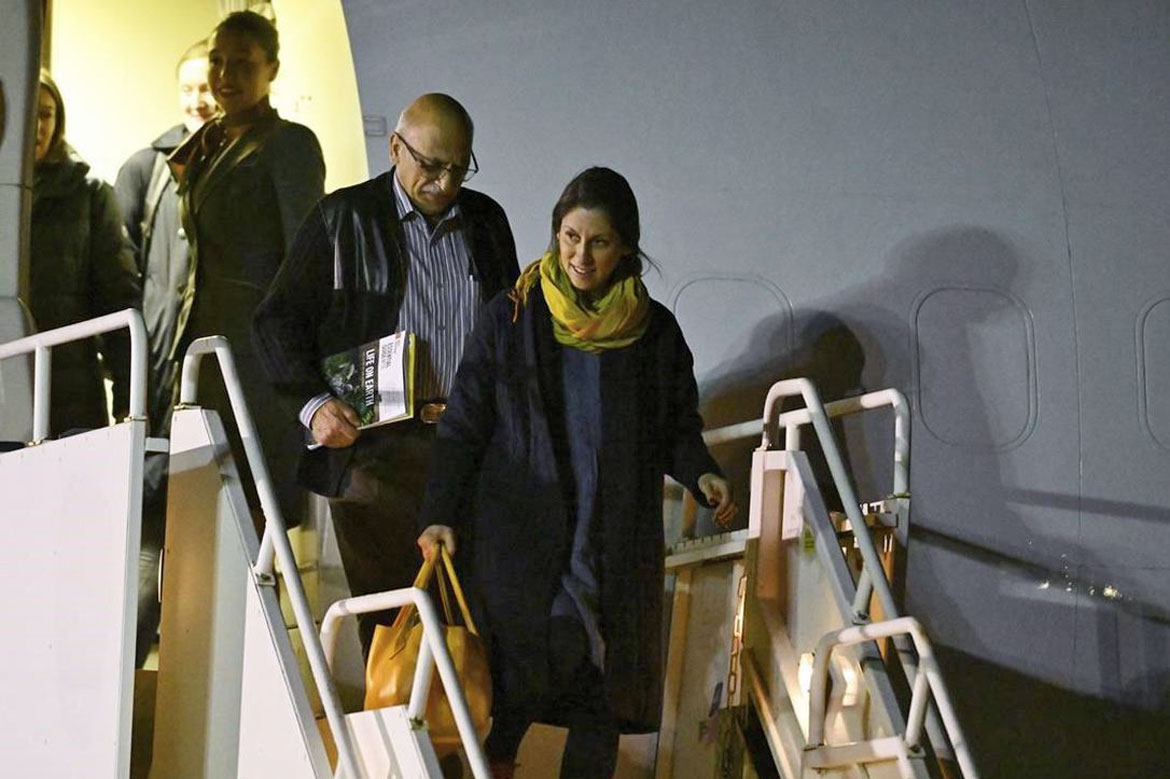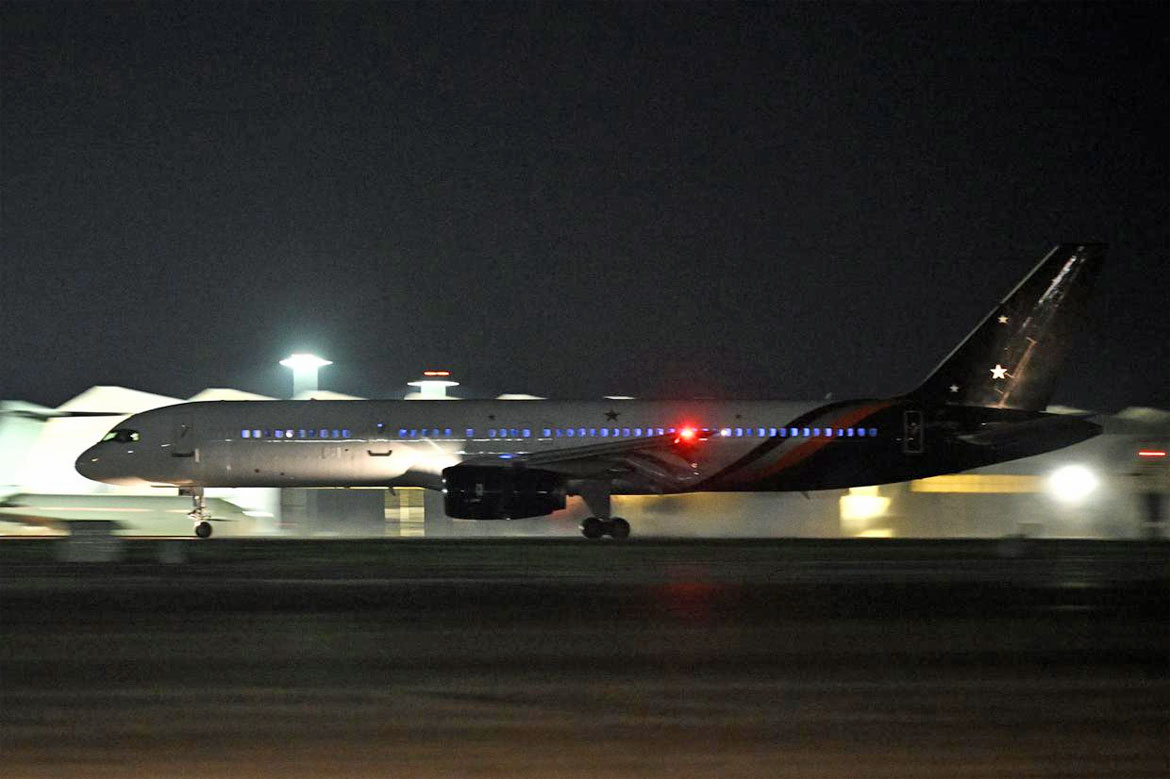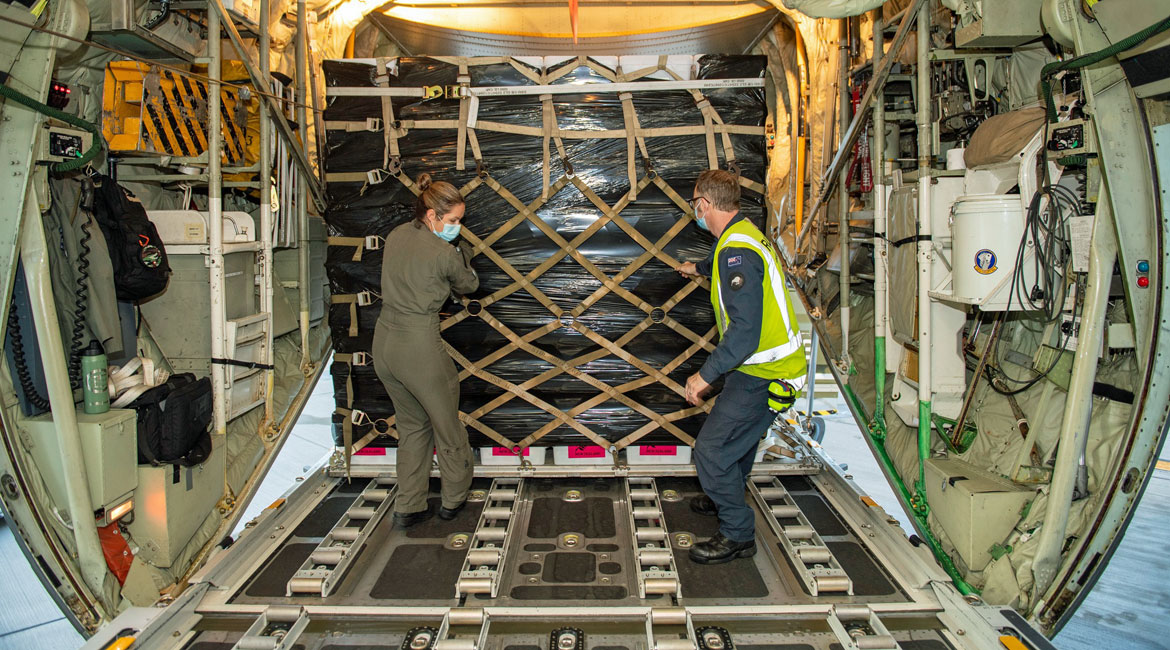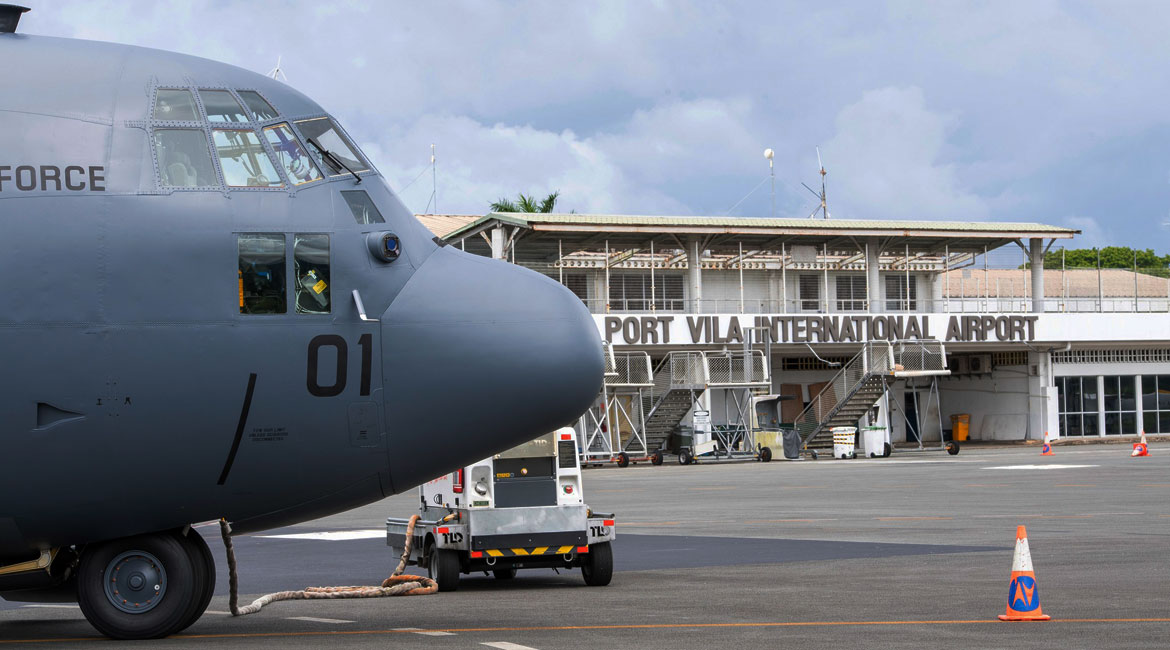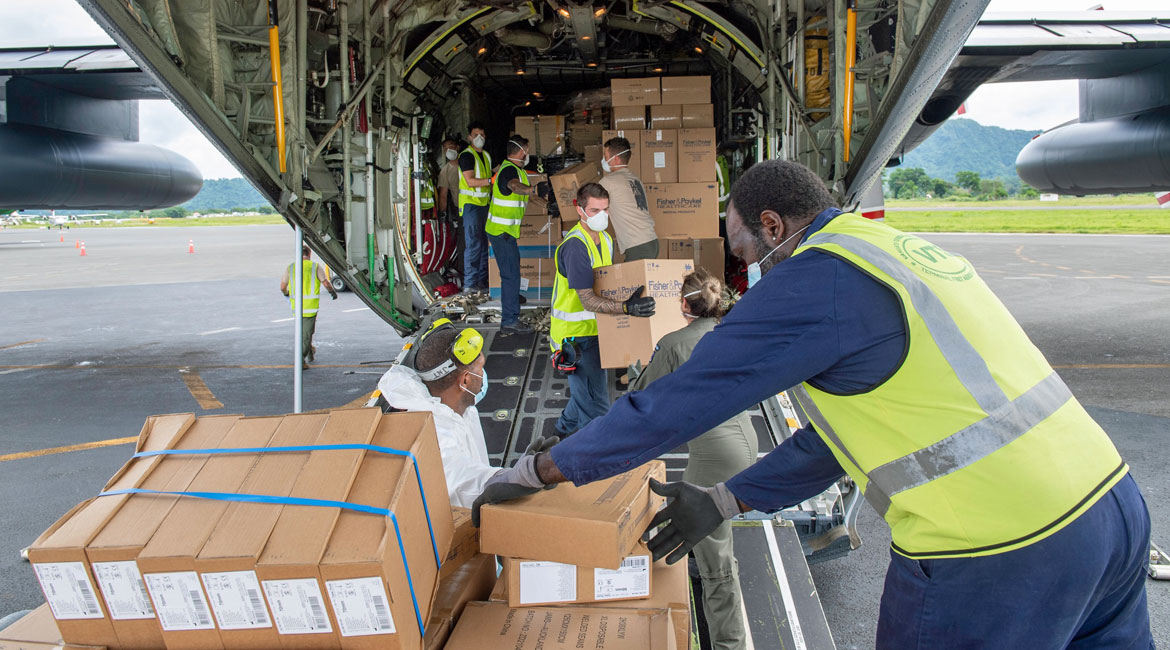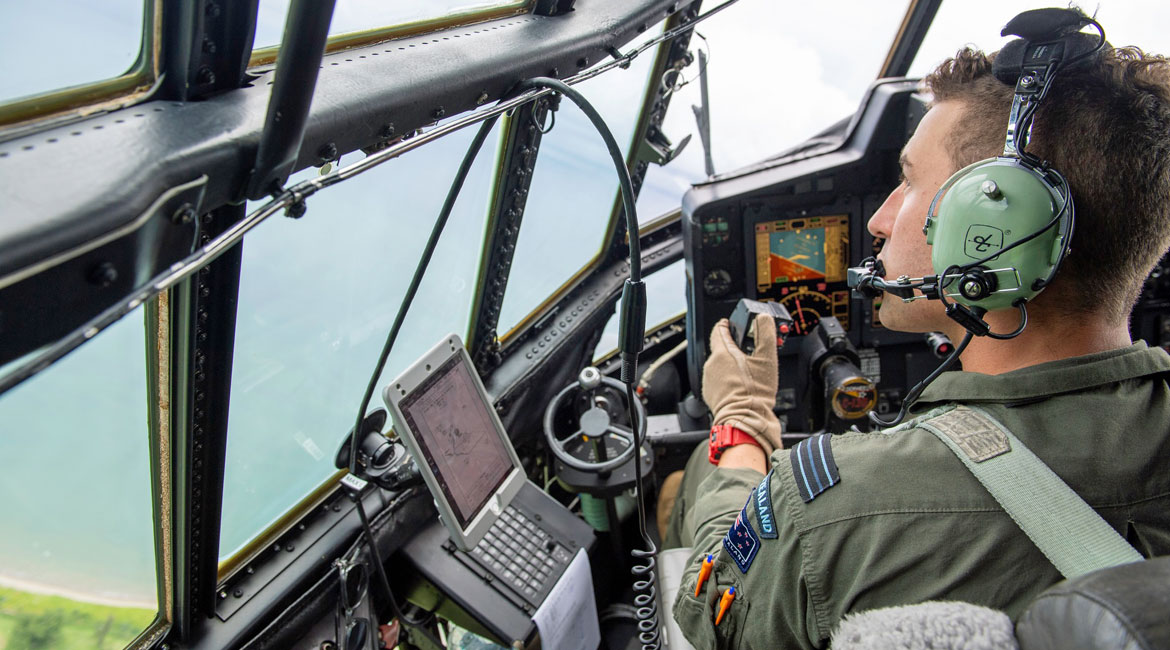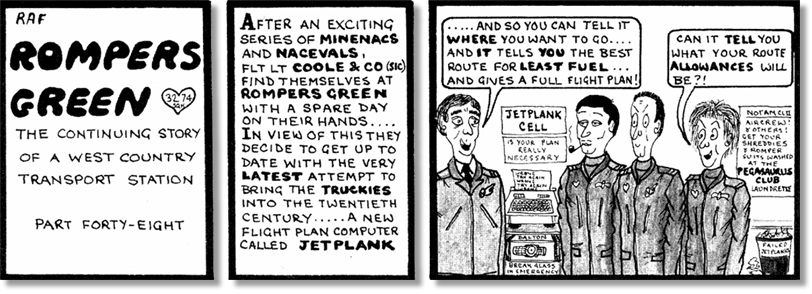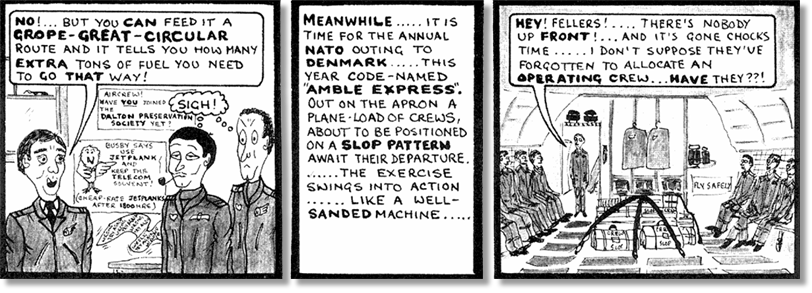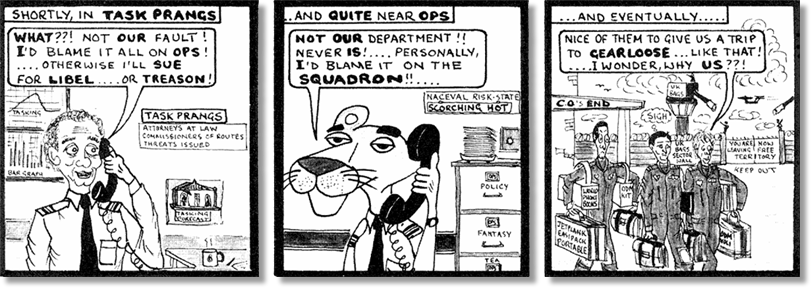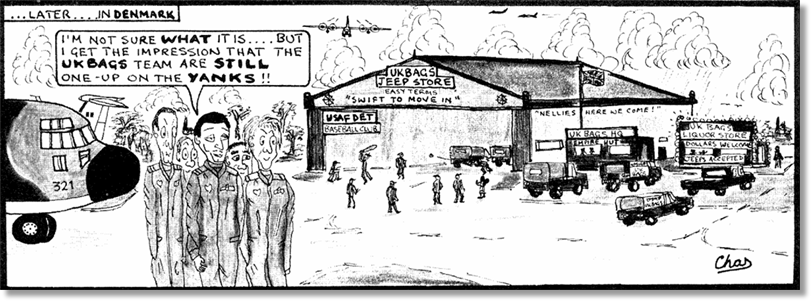


From: Andrew Downard, Ballarat, VIC
Subject: RE: UKMAMS OBA OBB #022822
Hi Tony,
As usual, it takes reading a couple of stories in the newsletter to trigger my memories, and the same thing has occurred this month. As with many of your correspondents, I was introduced to Trim Sheets at the Air Movements School in Abingdon, a process that left me in total confusion!
I successfully dodged any involvement in trim sheets for several tours until posted into Gan, where to my horror I was placed in the Trim Clerks role. The fear of hanging focusing the mind theory kicked in, and the two weeks handover I had from my predecessor was very focussed indeed. The first few trims were a bit ropey but I got the hang of it. I then discovered that I, in fact, had one of the two best jobs on the island. The other premium job was working at the Pax Terminal (The Golden Flip Flop), letching at the Navy wives heading back from Honkers. But the best was Trim Clerk because you had about an hour ‘one-on-one’ with the female AQM’s on the Brit’s and VC10’s. Some serious chatting up would occur in that time. No wonder my going away tankard from Gan was engraved “Sensual Trim Sheets”!
Gan was an interesting transit because depending on the time of the year, the winds going across to Cyprus could be pretty strong and it wasn’t unusual for Captains to make last minute changes to the fuel loads with impacts on the load we could get on out of Gan. This meant that a neatly completed trim sheet would turn into smudged nest of rats before you knew it. There were a number of tricks we employed (mostly with the DAMO’s knowledge, sorry Ian) to overcome last minute trim problems. These included dropping a couple of hundred pounds of domestic water or going heavy on one side of the herringbones and light on the other. We did have one pretty green Loady who took our solution to making the Zero Fuel Weight as an instruction to open the cocks and dump a pool of domestic water on the Pan. I can’t say I ever came from the ‘tidy desk’ school of management, and I always remember that Ian Envis would immediately ask “What's wrong?” if he came into the Trim Office to see a set of neatly piled manifests and printouts from the mechanical calculator. Plus there was always the joy of having a certain Welsh Corporal coming in from the Pan to announce that “Three fifths of the baggage is in H, two Fifths in I and one fifth is in J”!
On final note, a couple of years back I was fortunate enough to get to visit Akrotiri Air Movements when I was passing through Cyprus. Anyway I noticed that trims are all computerised now and the Trim Clerks are all Sergeants... Oh, how the mighty have fallen!
Andy
Subject: RE: UKMAMS OBA OBB #022822
Hi Tony,
As usual, it takes reading a couple of stories in the newsletter to trigger my memories, and the same thing has occurred this month. As with many of your correspondents, I was introduced to Trim Sheets at the Air Movements School in Abingdon, a process that left me in total confusion!
I successfully dodged any involvement in trim sheets for several tours until posted into Gan, where to my horror I was placed in the Trim Clerks role. The fear of hanging focusing the mind theory kicked in, and the two weeks handover I had from my predecessor was very focussed indeed. The first few trims were a bit ropey but I got the hang of it. I then discovered that I, in fact, had one of the two best jobs on the island. The other premium job was working at the Pax Terminal (The Golden Flip Flop), letching at the Navy wives heading back from Honkers. But the best was Trim Clerk because you had about an hour ‘one-on-one’ with the female AQM’s on the Brit’s and VC10’s. Some serious chatting up would occur in that time. No wonder my going away tankard from Gan was engraved “Sensual Trim Sheets”!
Gan was an interesting transit because depending on the time of the year, the winds going across to Cyprus could be pretty strong and it wasn’t unusual for Captains to make last minute changes to the fuel loads with impacts on the load we could get on out of Gan. This meant that a neatly completed trim sheet would turn into smudged nest of rats before you knew it. There were a number of tricks we employed (mostly with the DAMO’s knowledge, sorry Ian) to overcome last minute trim problems. These included dropping a couple of hundred pounds of domestic water or going heavy on one side of the herringbones and light on the other. We did have one pretty green Loady who took our solution to making the Zero Fuel Weight as an instruction to open the cocks and dump a pool of domestic water on the Pan. I can’t say I ever came from the ‘tidy desk’ school of management, and I always remember that Ian Envis would immediately ask “What's wrong?” if he came into the Trim Office to see a set of neatly piled manifests and printouts from the mechanical calculator. Plus there was always the joy of having a certain Welsh Corporal coming in from the Pan to announce that “Three fifths of the baggage is in H, two Fifths in I and one fifth is in J”!
On final note, a couple of years back I was fortunate enough to get to visit Akrotiri Air Movements when I was passing through Cyprus. Anyway I noticed that trims are all computerised now and the Trim Clerks are all Sergeants... Oh, how the mighty have fallen!
Andy
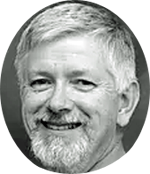

From: John Gillis, Hanwell, NB
Subject: Gatwick Mover
Hi Tony,
Do you know the name of the Mover who was at Gatwick Airport 1986-87? I think he was Navy but for the sake of me, I can't think of his name. Would appreciate any info.
Thanks, John
Subject: Gatwick Mover
Hi Tony,
Do you know the name of the Mover who was at Gatwick Airport 1986-87? I think he was Navy but for the sake of me, I can't think of his name. Would appreciate any info.
Thanks, John
From: Ian Berry, Eastleaze, Swindon, Wilts
Subject: Question re Gatwick Mover
Hi Tony,
If he was a matelot then he can only have been part of JSATC who had detachments at most of the airports. Not sure who served on JSATC during that period so better to ask through your newsletter?
Ian
Subject: Question re Gatwick Mover
Hi Tony,
If he was a matelot then he can only have been part of JSATC who had detachments at most of the airports. Not sure who served on JSATC during that period so better to ask through your newsletter?
Ian

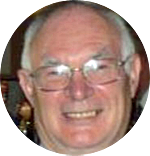

As our regular readers will know, Mark Attrill recently retired from the RAF and continued his former NATO job in Estonia as a civilian instructor at the Defence College there. I sent Mark an e-mail several weeks ago enquiring about his current situation in light of Russia’s invasion of Ukraine.
From: From: Mark Attrill, Tallinn
Subject: Re: Ukrainian Invasion
Hi Tony,
Thanks for your interest with regard to the ongoing crisis. I believe that I will be considered too old for a return to Service with the UK but please see below.
We returned to work yesterday after the long weekend break, centered around Estonia's own Independence Day celebration which, ironically, fell on the first day of the illegal Russian invasion of Ukraine. Over the weekend my wife and I managed to do some work to support local charity groups providing direct and indirect support to Ukraine. On Sunday, I delivered food to a convoy that was heading off to Ukraine to support internally displaced persons and the Defence Forces. We will also deliver to the Red Cross in Tallinn next weekend, who are preparing refugee centres in Estonia.
Yesterday we learned that one of our Ukrainian students from last year's course (which graduated in June 2021) was killed in action over the weekend and today we learned about the loss of a second Ukrainian officer from the 2019/20 course (both with SF background). As you can imagine their loss has been keenly felt by the College Faculty and student body.
Two of our five Ukrainian students had already left for Ukraine last Wednesday to 'enjoy' a long weekend break with their friends and family. They have, quite obviously, not returned to the College and over the weekend our Estonian Commandant provided the remaining three students with a military vehicle so they could also drive to Ukraine and join the fight.
For my part, I have discovered that as a former NATO officer, I am entitled to join the Estonian Defence League (EDL - Kaitseliit - Estonia's equivalent of the TA or the Ukrainian Territorial Defence Units you can now see on TV). Fortunately I have already trained on the standard Estonian small arms during my time working with the Estonian Defence Forces and evidently they can fast track my application, which with local sponsorship, will go in shortly.
I feel this is necessary since we are quite heavily 'invested' in Estonia. My wife is understandably nervous about the current situation as is my 21-year old Daughter still studying and working in Tallinn. The fact that some of our friends and family back in the UK do not seem to know where Estonia is (i.e. not immediately next door to Ukraine) or that they are part of NATO does not help so we have been fielding some pretty inane questions over the phone and internet if I am brutally honest.
Yes, it's a little tense right now but the Brits and French are reinforcing here as are the Canadians 'down the road' in Latvia and the VJTF are also on the way.
Kind Regards
Mark A
Subject: Re: Ukrainian Invasion
Hi Tony,
Thanks for your interest with regard to the ongoing crisis. I believe that I will be considered too old for a return to Service with the UK but please see below.
We returned to work yesterday after the long weekend break, centered around Estonia's own Independence Day celebration which, ironically, fell on the first day of the illegal Russian invasion of Ukraine. Over the weekend my wife and I managed to do some work to support local charity groups providing direct and indirect support to Ukraine. On Sunday, I delivered food to a convoy that was heading off to Ukraine to support internally displaced persons and the Defence Forces. We will also deliver to the Red Cross in Tallinn next weekend, who are preparing refugee centres in Estonia.
Yesterday we learned that one of our Ukrainian students from last year's course (which graduated in June 2021) was killed in action over the weekend and today we learned about the loss of a second Ukrainian officer from the 2019/20 course (both with SF background). As you can imagine their loss has been keenly felt by the College Faculty and student body.
Two of our five Ukrainian students had already left for Ukraine last Wednesday to 'enjoy' a long weekend break with their friends and family. They have, quite obviously, not returned to the College and over the weekend our Estonian Commandant provided the remaining three students with a military vehicle so they could also drive to Ukraine and join the fight.
For my part, I have discovered that as a former NATO officer, I am entitled to join the Estonian Defence League (EDL - Kaitseliit - Estonia's equivalent of the TA or the Ukrainian Territorial Defence Units you can now see on TV). Fortunately I have already trained on the standard Estonian small arms during my time working with the Estonian Defence Forces and evidently they can fast track my application, which with local sponsorship, will go in shortly.
I feel this is necessary since we are quite heavily 'invested' in Estonia. My wife is understandably nervous about the current situation as is my 21-year old Daughter still studying and working in Tallinn. The fact that some of our friends and family back in the UK do not seem to know where Estonia is (i.e. not immediately next door to Ukraine) or that they are part of NATO does not help so we have been fielding some pretty inane questions over the phone and internet if I am brutally honest.
Yes, it's a little tense right now but the Brits and French are reinforcing here as are the Canadians 'down the road' in Latvia and the VJTF are also on the way.
Kind Regards
Mark A
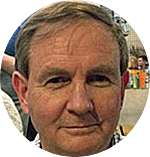

Australia Sends Military Assistance to Ukraine
A Royal Australian Air Force C-17A Globemaster III aircraft departed RAAF Base Richmond, Sydney, en route to Europe on Wednesday, 02 March 2022 carrying critical military equipment and medical supplies to support the Government of Ukraine.
Department of Defence Australia
Department of Defence Australia

From: Dave Green, Huntingdon, Cambs
Subject: The Duty-Free Run
Tony,
Thanks again for a great monthly read.
My overwhelming duty free experience came as a result of the RAF buying/taking the Tristar as a Strategic Transport aircraft. It was all done in a rush with initially British Airways flying and crewing the aircraft. As a result, a senior military individual was required to hold an imprest and make any diversion accommodation arrangements for the military pax etc.
If I recall correctly, the Loadies were offered the job but they plainly didn't like the idea and turned it down. A smart mover (I would love to know who it was) said Movements Officers would take on the onerous task. The position became known as the Military Airlift Commander or MAC. The MAC was actually a passenger and not operating crew hence a full duty-free allowance per operated leg was applicable as opposed to 1/8 of a full allowance for operating crew.
I did a Exercise Medicine Man rotation over a four-day period involving five trips into the UK from Gutersloh and Calgary, hence five full duty-free allowances and three night stops in four-star accommodation. I guess the Loadies were kicking themselves for many months as a result!
Rgds
Dave Green
Subject: The Duty-Free Run
Tony,
Thanks again for a great monthly read.
My overwhelming duty free experience came as a result of the RAF buying/taking the Tristar as a Strategic Transport aircraft. It was all done in a rush with initially British Airways flying and crewing the aircraft. As a result, a senior military individual was required to hold an imprest and make any diversion accommodation arrangements for the military pax etc.
If I recall correctly, the Loadies were offered the job but they plainly didn't like the idea and turned it down. A smart mover (I would love to know who it was) said Movements Officers would take on the onerous task. The position became known as the Military Airlift Commander or MAC. The MAC was actually a passenger and not operating crew hence a full duty-free allowance per operated leg was applicable as opposed to 1/8 of a full allowance for operating crew.
I did a Exercise Medicine Man rotation over a four-day period involving five trips into the UK from Gutersloh and Calgary, hence five full duty-free allowances and three night stops in four-star accommodation. I guess the Loadies were kicking themselves for many months as a result!
Rgds
Dave Green
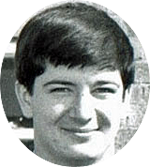

From: Chris Goss, Marlow, Bucks
Subject: The Duty-Free Run
Tony,
The first DF memory was when I was DAMO BZN in 1984. A VC10 came in from ASI, half the pax got off, it then went on to Wildenrath and returned empty to Brize. I had a phone call from the Wildenrath Movers asking why we had not put pax on it for a DF run as they had kept the DF shop open for it . They said there was another one the following night so I went out to the Station, got (willing) volunteers who all had night-stop kit and were dressed correctly. Cleared it with 38 Group and 10 Sqn. Aircraft went out and was back within 3 hours. You could hear the clinking of Herforder Pils as the aircraft touched down. It turns out this had been a great morale boost for the Station as most sections were under the cosh thanks to the Falklands war.
The second DF memory was when I was on UKMAMS, according to my logbook, 16 May 1985 - Lyneham to Wattisham, Wattisham to Gutersloh, back to Wattisham and then return to Lyneham by road. Derek Baron suggested that in addition to the short wheelbase Land Rover (SWBLR) we take a trailer, fill it up with DF's in Germany and drive back which is exactly what we did.
The journey back by road, via Tony Last's Mum's house, was a blur as the non-drivers had to sample some of the beer. When we got to the main gate, I remember Derek bollocking the gate guard as he had failed to salute the sleeping Fg Off sitting in the front. Hard to believe this was nearly 37 years ago and I can still remember it!
Regards
Chris
Subject: The Duty-Free Run
Tony,
The first DF memory was when I was DAMO BZN in 1984. A VC10 came in from ASI, half the pax got off, it then went on to Wildenrath and returned empty to Brize. I had a phone call from the Wildenrath Movers asking why we had not put pax on it for a DF run as they had kept the DF shop open for it . They said there was another one the following night so I went out to the Station, got (willing) volunteers who all had night-stop kit and were dressed correctly. Cleared it with 38 Group and 10 Sqn. Aircraft went out and was back within 3 hours. You could hear the clinking of Herforder Pils as the aircraft touched down. It turns out this had been a great morale boost for the Station as most sections were under the cosh thanks to the Falklands war.
The second DF memory was when I was on UKMAMS, according to my logbook, 16 May 1985 - Lyneham to Wattisham, Wattisham to Gutersloh, back to Wattisham and then return to Lyneham by road. Derek Baron suggested that in addition to the short wheelbase Land Rover (SWBLR) we take a trailer, fill it up with DF's in Germany and drive back which is exactly what we did.
The journey back by road, via Tony Last's Mum's house, was a blur as the non-drivers had to sample some of the beer. When we got to the main gate, I remember Derek bollocking the gate guard as he had failed to salute the sleeping Fg Off sitting in the front. Hard to believe this was nearly 37 years ago and I can still remember it!
Regards
Chris


From: Tony Street, Buffalo, NY
Subject: Duty Free
Hey Tony,
In Canada, during the 60s, porn was not available as freely as it was in Europe. In fact, it was banned and regarded as being super naughty and could get you jail time.
On a rare trip to Sweden, clearing customs back into the country, the Cusoms Officer (John Mace), asked the gnarly Flight Engineer, "Do you have any pornography?"
"Sh!t, John, I dont even have a pornograph." He replied.
One of our kind, but not the brightest, once bought a case of rum whilst in Jamaica and hid the bottles individually behind the insulation in the belly. Upon arrival back home, the rum was discovered very quickly and he was brought to book equally as fast as the receipt, with his name on it, was stuck to one of the bottles!
Then again, back in the day when things were tight, there's the story, about one of the servicing crew clearing customs with a 50ft garden hose, fittings coupled together, draped over himself like a bandolleer. When questioned about this, he replied, "It was a real bargain at the PX, I couldn't resist, I hope you're not going to make me pay duty on it."
The customs guy looked at it with a veteran's eye, and asked, "Why does it have bubbles?" Which make one ponder, how much whiskey can a 50ft hose contain?
Cheers
Tony
Subject: Duty Free
Hey Tony,
In Canada, during the 60s, porn was not available as freely as it was in Europe. In fact, it was banned and regarded as being super naughty and could get you jail time.
On a rare trip to Sweden, clearing customs back into the country, the Cusoms Officer (John Mace), asked the gnarly Flight Engineer, "Do you have any pornography?"
"Sh!t, John, I dont even have a pornograph." He replied.
One of our kind, but not the brightest, once bought a case of rum whilst in Jamaica and hid the bottles individually behind the insulation in the belly. Upon arrival back home, the rum was discovered very quickly and he was brought to book equally as fast as the receipt, with his name on it, was stuck to one of the bottles!
Then again, back in the day when things were tight, there's the story, about one of the servicing crew clearing customs with a 50ft garden hose, fittings coupled together, draped over himself like a bandolleer. When questioned about this, he replied, "It was a real bargain at the PX, I couldn't resist, I hope you're not going to make me pay duty on it."
The customs guy looked at it with a veteran's eye, and asked, "Why does it have bubbles?" Which make one ponder, how much whiskey can a 50ft hose contain?
Cheers
Tony


Free at Last - Nazanin and Anoosheh Land at Brize Norton
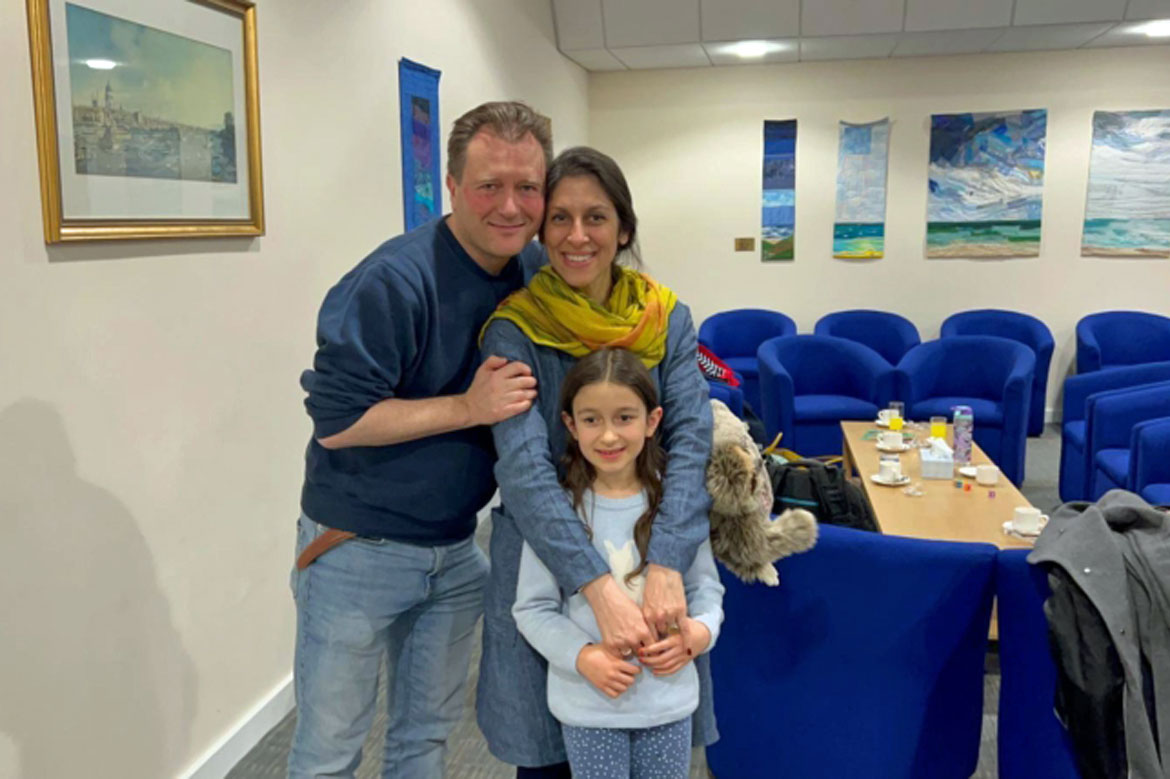
Two British citizens who had been jailed in Iran for more than five years — charity worker Nazanin Zaghari-Ratcliffe and retired civil engineer Anoosheh Ashoori — returned home to their families’ hugs and tears Thursday after the U.K. settled a decades-old debt to Iran.
Zaghari-Ratcliffe hugged her 7-year-old daughter, and her husband and members of Ashoori’s family tearfully embraced one another after the two arrived via a government-chartered Titan Airways aircraft at the Brize Norton air force base in Oxfordshire in the early morning hours.
The British government said a third detainee, Morad Tahbaz, who holds U.S., British and Iranian citizenship, was released from prison on furlough as part of the same deal.
The breakthrough was reached as world leaders try to negotiate the return of both Iran and the U.S. to an international agreement designed to limit Tehran’s nuclear enrichment program — talks that have been complicated by the prisoner issue. Negotiators have edged closer to a roadmap for restoring the accord, though recent Russian demands slowed progress.
thestar.com
Zaghari-Ratcliffe hugged her 7-year-old daughter, and her husband and members of Ashoori’s family tearfully embraced one another after the two arrived via a government-chartered Titan Airways aircraft at the Brize Norton air force base in Oxfordshire in the early morning hours.
The British government said a third detainee, Morad Tahbaz, who holds U.S., British and Iranian citizenship, was released from prison on furlough as part of the same deal.
The breakthrough was reached as world leaders try to negotiate the return of both Iran and the U.S. to an international agreement designed to limit Tehran’s nuclear enrichment program — talks that have been complicated by the prisoner issue. Negotiators have edged closer to a roadmap for restoring the accord, though recent Russian demands slowed progress.
thestar.com

From: Alex McGrath, Halton, Bucks
Subject: The Duty-Free Run
Hi Tony,
I had a rather disastrous but memorable DF run around '86.
I was the B shift sprog at the time and I was offered the chance of a Germany trip on 216 Sqn Tristar C2. The route was supposed to be something like LHR-HAJ-LTN-HAJ-BZZ, doing the school children’s visits double run. Armed with a shift shopping list and a pocket full of cash, I headed off in an MT coach along with the crew to pick up the jet from BA Eng at Heathrow (it was in for a service).
When we arrived, we were told the aircraft was still in the hangar (which bizarrely had somewhere in the region of around 200 cars parked in front of it) and that it should be ready soon. So, as we were airside with nowhere to go, we were invited into the hangar crew room for free brews and the chance for a smoke. After a couple of hours the Captain was getting twitchy about crew duty and when he went off to find out what the delay was, MALM Douse (Paul Douse's old fella) got us an invite onboard the Concorde which was in the hangar next to the Tristar. It was great to have the opportunity to look around the Queen of the skies, I remember how small the cabin seemed compared to our own VC10 from the same era.
After our little jolly we were good to go. We watched the Tristar being towed to the engine running test bay nearby and the MT bus dropped us off at the bottom of the steps and departed back to base. Unfortunately all was not well, after a few hours in the hangar followed by 2 hours sitting on the jet whilst engine runs were completed, it was decided to cancel the task and return to base. Finally getting on our way, we then sat for about 50 minutes at the end of the runway awaiting a departure slot. Once airborne no sooner had we got up and travelled along we were coming in to land at Brize after about a 20 minute jaunt around the Cotswolds.
Needless to say the much anticipated corridor party didn’t happen and the shift retired to the Pig's Bar behind the NAAFI for a few scoops as usual. As you can imagine, the level of abuse directed at the sprog was greater than normal due to failing to deliver the manna from Germany.
Cheers
Al
Subject: The Duty-Free Run
Hi Tony,
I had a rather disastrous but memorable DF run around '86.
I was the B shift sprog at the time and I was offered the chance of a Germany trip on 216 Sqn Tristar C2. The route was supposed to be something like LHR-HAJ-LTN-HAJ-BZZ, doing the school children’s visits double run. Armed with a shift shopping list and a pocket full of cash, I headed off in an MT coach along with the crew to pick up the jet from BA Eng at Heathrow (it was in for a service).
When we arrived, we were told the aircraft was still in the hangar (which bizarrely had somewhere in the region of around 200 cars parked in front of it) and that it should be ready soon. So, as we were airside with nowhere to go, we were invited into the hangar crew room for free brews and the chance for a smoke. After a couple of hours the Captain was getting twitchy about crew duty and when he went off to find out what the delay was, MALM Douse (Paul Douse's old fella) got us an invite onboard the Concorde which was in the hangar next to the Tristar. It was great to have the opportunity to look around the Queen of the skies, I remember how small the cabin seemed compared to our own VC10 from the same era.
After our little jolly we were good to go. We watched the Tristar being towed to the engine running test bay nearby and the MT bus dropped us off at the bottom of the steps and departed back to base. Unfortunately all was not well, after a few hours in the hangar followed by 2 hours sitting on the jet whilst engine runs were completed, it was decided to cancel the task and return to base. Finally getting on our way, we then sat for about 50 minutes at the end of the runway awaiting a departure slot. Once airborne no sooner had we got up and travelled along we were coming in to land at Brize after about a 20 minute jaunt around the Cotswolds.
Needless to say the much anticipated corridor party didn’t happen and the shift retired to the Pig's Bar behind the NAAFI for a few scoops as usual. As you can imagine, the level of abuse directed at the sprog was greater than normal due to failing to deliver the manna from Germany.
Cheers
Al


From: Alan Power, Lyneham, Wilts
Subject: The Duty-Free Run
Hi Tony,
Here's a trilogy of DF stories:
1. The Benbecula rapier live firing by rapier squadrons in Germany was a great way of stocking up on duty free. Orders for duty free for all the airport staff went down well and helped officials turn a blind eye to the operation. The crews were more than happy to get in on this as well.
2. The funniest experience I had with duty free was at Lyneham on a Hercules while loading it for an outbound flight. I was left on board to tie in a couple of loose items while the other guys went for the baggage. I couldn’t find any lashing tape on board so I rummaged in the bin as you did then for some tape and to my surprise I found 400 cigarettes, a bottle of vodka and a bottle of whiskey at the bottom of the bin. We had a good party in Dakota block that weekend.
3. Lajes in the Azores was handy for getting duty frees even though it was in the EU. The American base was widely used by us and the crews and also by Carlos and Joe.
Happy days,
Regards, Paddy
Subject: The Duty-Free Run
Hi Tony,
Here's a trilogy of DF stories:
1. The Benbecula rapier live firing by rapier squadrons in Germany was a great way of stocking up on duty free. Orders for duty free for all the airport staff went down well and helped officials turn a blind eye to the operation. The crews were more than happy to get in on this as well.
2. The funniest experience I had with duty free was at Lyneham on a Hercules while loading it for an outbound flight. I was left on board to tie in a couple of loose items while the other guys went for the baggage. I couldn’t find any lashing tape on board so I rummaged in the bin as you did then for some tape and to my surprise I found 400 cigarettes, a bottle of vodka and a bottle of whiskey at the bottom of the bin. We had a good party in Dakota block that weekend.
3. Lajes in the Azores was handy for getting duty frees even though it was in the EU. The American base was widely used by us and the crews and also by Carlos and Joe.
Happy days,
Regards, Paddy


From: John Scott, Waterloo, ON
Subject: The Duty-Free Run
Tony,
The best DF was actually when I was a Dash 7 Captain. We were on a trip including a stop in Shannon. The Capt and the Purser were brought to the Duty Free and we had a choice of one bottle of whatever FREE. When we got to customs we declared them as a gift as we had a signed note from the DF official!
This is true of any Commercial flight that lands and refuels at Shannon as it is a blatant encouragement to indeed stop there rather than Prestwick!
John
(ex-CC130 Driver)
When in space, where indeed is North?
Subject: The Duty-Free Run
Tony,
The best DF was actually when I was a Dash 7 Captain. We were on a trip including a stop in Shannon. The Capt and the Purser were brought to the Duty Free and we had a choice of one bottle of whatever FREE. When we got to customs we declared them as a gift as we had a signed note from the DF official!
This is true of any Commercial flight that lands and refuels at Shannon as it is a blatant encouragement to indeed stop there rather than Prestwick!
John
(ex-CC130 Driver)
When in space, where indeed is North?


From: Jim Aitken, Sunshine Coast, QLD
Subject: Customs Capers
Hi Tony,
At the age of 18 I had never flown before, other than a five-minute flight in an Anson during recruit training. Having spent a year in the RAF and working in Air Movements I decided, with a mate, to apply for a SNC (supernumerary crew) flight to gain what was termed 'route experience'. I was working in the Unaccompanied Baggage section at Lyneham where we were tasked with assisting the Senior Customs Landing Officer (SCLO) to inspect personal effects of returning Tourex personnel. When Bill Force, the SCLO, heard I was off to Malta on a jolly of about three days he asked me if I was a drinker. At this stage of my career I was a "half pint of beer" man, or when the cash was tight, a scrumpy imbiber mostly at the Glue Pot in Swindon. I neither drank spirits nor smoked, so I was quite happy to bring the SCLO a bottle of his favourite tipple, Pimms No1. He was quite a heavy smoker but didn't ask for cigarettes which I assumed he got in plentiful supply from the customs impounded stock!
The flight was designated UFH, (United Kingdom - Fayid - Hastings) which was staging through Luqa, Malta. We had no inclination to visit the Canal Zone so offloaded ourselves at Malta to await the return flight in a couple of days. This would be just enough time to explore Valletta and see if the rumours we had heard about "The Gut" were true! [They were!]
When time came to return, we fronted ourselves at Air Movs Luqa to be told that the returning aircraft had priority passengers on board and we were to be offloaded to await a later flight. We were both on a three-day pass and you can imagine our delight at being told that we could spend a couple more days in the Med. That actually became two weeks stranded in Malta with messages flowing back and forth to and from Lyneham. When we eventually got back, including Bill Force's Pimms and 200 cigarettes in round tins of fifty, we were up in front of the SWO to explain our AWOL. Following a good ticking off from him, he did accept that we were not to blame. The outcome of that trip was that I took up smoking and continued to do so until quitting after almost 70 years.
My next contact with customs was when I was returning Casevac from Changi, Singapore, after having contracted polio. I was being returned to the UK for treatment at RAF Chessington. My wife and new born son were preceding me and I asked my wife to buy a Yashica twin lens reflex camera from the shop in Changi Village. As I was returning as a stretcher case by RAF Comet, I assumed that I would have little trouble with customs if I secreted the camera between my legs, covered by my blankets on the stretcher. Alas, the best laid plans... I was asked if I minded occupying a seat on the return to the UK as there was a priority case that needed a stretcher. In fact I was quite happy to oblige as the forward compartment with stretchers packed in three high was quite claustrophobic. Of course I had overlooked the fact that I was now a "walking wounded" and would have to go through customs. No sympathy from customs, the camera was impounded and sent to Bristol from where I could reclaim it on payment of the hefty excise which took me a few months to organise. My wife on the other hand, with baby in tow, sailed through customs with no bother.
Bluddy customs!
Subject: Customs Capers
Hi Tony,
At the age of 18 I had never flown before, other than a five-minute flight in an Anson during recruit training. Having spent a year in the RAF and working in Air Movements I decided, with a mate, to apply for a SNC (supernumerary crew) flight to gain what was termed 'route experience'. I was working in the Unaccompanied Baggage section at Lyneham where we were tasked with assisting the Senior Customs Landing Officer (SCLO) to inspect personal effects of returning Tourex personnel. When Bill Force, the SCLO, heard I was off to Malta on a jolly of about three days he asked me if I was a drinker. At this stage of my career I was a "half pint of beer" man, or when the cash was tight, a scrumpy imbiber mostly at the Glue Pot in Swindon. I neither drank spirits nor smoked, so I was quite happy to bring the SCLO a bottle of his favourite tipple, Pimms No1. He was quite a heavy smoker but didn't ask for cigarettes which I assumed he got in plentiful supply from the customs impounded stock!
The flight was designated UFH, (United Kingdom - Fayid - Hastings) which was staging through Luqa, Malta. We had no inclination to visit the Canal Zone so offloaded ourselves at Malta to await the return flight in a couple of days. This would be just enough time to explore Valletta and see if the rumours we had heard about "The Gut" were true! [They were!]
When time came to return, we fronted ourselves at Air Movs Luqa to be told that the returning aircraft had priority passengers on board and we were to be offloaded to await a later flight. We were both on a three-day pass and you can imagine our delight at being told that we could spend a couple more days in the Med. That actually became two weeks stranded in Malta with messages flowing back and forth to and from Lyneham. When we eventually got back, including Bill Force's Pimms and 200 cigarettes in round tins of fifty, we were up in front of the SWO to explain our AWOL. Following a good ticking off from him, he did accept that we were not to blame. The outcome of that trip was that I took up smoking and continued to do so until quitting after almost 70 years.
My next contact with customs was when I was returning Casevac from Changi, Singapore, after having contracted polio. I was being returned to the UK for treatment at RAF Chessington. My wife and new born son were preceding me and I asked my wife to buy a Yashica twin lens reflex camera from the shop in Changi Village. As I was returning as a stretcher case by RAF Comet, I assumed that I would have little trouble with customs if I secreted the camera between my legs, covered by my blankets on the stretcher. Alas, the best laid plans... I was asked if I minded occupying a seat on the return to the UK as there was a priority case that needed a stretcher. In fact I was quite happy to oblige as the forward compartment with stretchers packed in three high was quite claustrophobic. Of course I had overlooked the fact that I was now a "walking wounded" and would have to go through customs. No sympathy from customs, the camera was impounded and sent to Bristol from where I could reclaim it on payment of the hefty excise which took me a few months to organise. My wife on the other hand, with baby in tow, sailed through customs with no bother.
Bluddy customs!

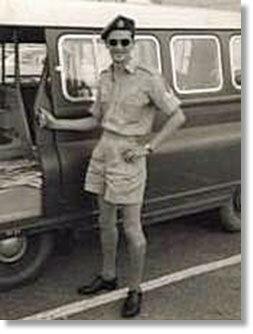
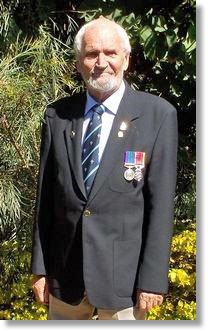
Now
Then

Don’t shut ‘vital’ RAF base, says MP
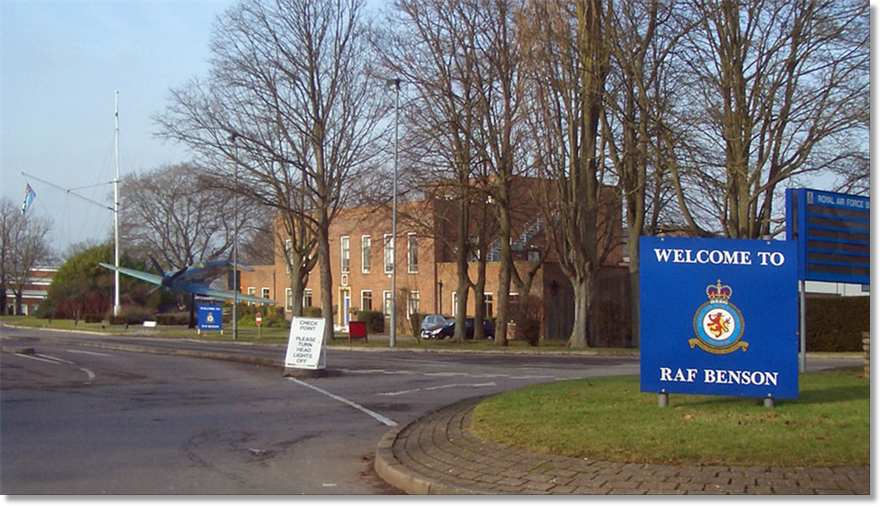
Henley MP John Howell called for the base not to be closed during a debate on expenditure by the Ministry of Defence. He said: “Something like £2 billion of strategic investment is to be made in the Royal Air Force. I think that should be increased. If Russia has taught us anything, it is that investment in tanks is not a very good one. If we look at Ukraine, a huge amount of anti-tank missiles are there already and something as fleet of foot as the Royal Air Force is to be commended. I do not want to set a hare running but I hope that the minister can confirm that bases such as RAF Benson are not earmarked for closure. They play a vital role and Benson does in particular in looking after the helicopters that we use all the time in our air force. They also have another use — they provide training.”
Andrew Bowie, MP for West Aberdeenshire and Kincardine, said: “I had the privilege of visiting RAF Benson just a couple of weeks ago and I reiterate my Honorable Friend’s comments on that base’s contribution to training the next generation of helicopter pilots and supporting the wide RAF and, indeed, the local community.”
Henley Standard
Andrew Bowie, MP for West Aberdeenshire and Kincardine, said: “I had the privilege of visiting RAF Benson just a couple of weeks ago and I reiterate my Honorable Friend’s comments on that base’s contribution to training the next generation of helicopter pilots and supporting the wide RAF and, indeed, the local community.”
Henley Standard
RAF Benson was praised during a debate in the House of Commons.


From: John Bell, Birmingham
Subject: The Duty-Free Run
Hi Tony,
We share similar experiences with that Northern Ireland rotation. A couple of times I have been lucky with customs, mainly when we would fly back to a RAF station after an overseas task to find no customs officer and the local Supply Squadron mobility officer would tell us that WE HAD NOTHING TO DECLARE!
My most memorable customs experience was not on UKMAMS but whilst I was serving at RAF Eastleigh in Kenya. I was a corporal on station movements and had developed a good working relationship with the local customs officer. One year, just before Christmas, I was asked by the Sergeants' Mess to fly to Khormaksar and buy a few things for their Mess Christmas Draw. Our local customs officer asked me to buy him a watch and some other bits while I was there and he would clear me and my purchases when I returned.
So, with a pocket full of cash I went off to Aden. The “few things” for the Sergeants' mess turned out to be a massive list of goodies, not just for the draw but for most of the SNCOs on the station. The movers at Khormaksar were very helpful and stored all my goodies in several large (very large) boxes in their cargo shed until I flew back to Eastleigh in an Argosy. However, and this is where the fun started, my flight was diverted to the international airport at Nairobi, about 20 miles from Eastleigh. I had no idea what I would do with several thousand pounds worth of dutiable items in my care.
When we landed, a customs officer, whom I had never met before, came onto the aircraft and told everybody that a coach and truck was on the way from Eastleigh to collect us once we cleared customs. He asked for me by name and told all the other pax to go to the arrivals lounge. Once the passengers were gone he told me that he knew about my shopping trip and the watch for the Eastleigh customs officer and said that he had agreed with the Eastleigh customs officer to expedite the clearance of my several boxes of goodies. Panic over, the truck was loaded an all was safely delivered to Eastleigh.
Phew!
John
Subject: The Duty-Free Run
Hi Tony,
We share similar experiences with that Northern Ireland rotation. A couple of times I have been lucky with customs, mainly when we would fly back to a RAF station after an overseas task to find no customs officer and the local Supply Squadron mobility officer would tell us that WE HAD NOTHING TO DECLARE!
My most memorable customs experience was not on UKMAMS but whilst I was serving at RAF Eastleigh in Kenya. I was a corporal on station movements and had developed a good working relationship with the local customs officer. One year, just before Christmas, I was asked by the Sergeants' Mess to fly to Khormaksar and buy a few things for their Mess Christmas Draw. Our local customs officer asked me to buy him a watch and some other bits while I was there and he would clear me and my purchases when I returned.
So, with a pocket full of cash I went off to Aden. The “few things” for the Sergeants' mess turned out to be a massive list of goodies, not just for the draw but for most of the SNCOs on the station. The movers at Khormaksar were very helpful and stored all my goodies in several large (very large) boxes in their cargo shed until I flew back to Eastleigh in an Argosy. However, and this is where the fun started, my flight was diverted to the international airport at Nairobi, about 20 miles from Eastleigh. I had no idea what I would do with several thousand pounds worth of dutiable items in my care.
When we landed, a customs officer, whom I had never met before, came onto the aircraft and told everybody that a coach and truck was on the way from Eastleigh to collect us once we cleared customs. He asked for me by name and told all the other pax to go to the arrivals lounge. Once the passengers were gone he told me that he knew about my shopping trip and the watch for the Eastleigh customs officer and said that he had agreed with the Eastleigh customs officer to expedite the clearance of my several boxes of goodies. Panic over, the truck was loaded an all was safely delivered to Eastleigh.
Phew!
John
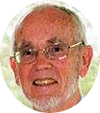

From: Vern Mike Lefebvre, Burton, NB
Subject: The Duty-Free Run
Thank you, Tony, for the opportunity to share an old memory.
Many years ago, I was a young, brand new C130 Loadmaster, flying with a squadron out of Ottawa, Canada. We went on a two day mission where we transported servicing equipment in support of the Aurora squadrons from Greenwood, Summerside and Halifax rotations - one deploying and one returning to and from Bermuda. The squadrons were conducting training exercises in succession.
On the first day, we flew from Ottawa to Bermuda to pick up our load. On our way in, we were reminded by our aircraft commander, our SQN CO, that we were not entitled to purchase any liquor since we did not have the required time out of the country. He was a very sharp CO - Wilkinson was his name.
Following this warning of severe consequences, the NAV handed out his funds to the Flight Engineer with the reassurance that he would make sure of stalling the CO for the time required to make the planned purchase.
After loading the aircraft, we went shopping… returning to dispose of our 12-bottle stash each - five of us, hiding them in our respective favourite spots, saving the empty cartons behind the insulation in the wheel well areas.
A few hours later, while offloading in Halifax, halfway through the offload, a decision was made to take a break. The Air Movements personnel went in and we closed up the ramp and doors and started retrieving our stash and filling the cases. Suddenly, I had the urge to go. I went out the crew door, running towards the terminal. I came face to face with the CO. He said “I forgot my hang-up bag”. I said, “I will get it for you Sir”. I ran back and got it for him.
The next day was the Cosmo flight to Ottawa - a regular run, which brought back our 5 cases which were then delivered to the Loadmaster Dispatcher’s office, to our delight returning home after one more trip to and from Bermuda directly.
I was the youngest of the crew and convinced that I am the only one left of a few that could buy 12 bottles of liquor for under $12!
Keep up the good work, Tony, you bring out the worst and the best in all of us.
Vern/Mike Lefebvre
Subject: The Duty-Free Run
Thank you, Tony, for the opportunity to share an old memory.
Many years ago, I was a young, brand new C130 Loadmaster, flying with a squadron out of Ottawa, Canada. We went on a two day mission where we transported servicing equipment in support of the Aurora squadrons from Greenwood, Summerside and Halifax rotations - one deploying and one returning to and from Bermuda. The squadrons were conducting training exercises in succession.
On the first day, we flew from Ottawa to Bermuda to pick up our load. On our way in, we were reminded by our aircraft commander, our SQN CO, that we were not entitled to purchase any liquor since we did not have the required time out of the country. He was a very sharp CO - Wilkinson was his name.
Following this warning of severe consequences, the NAV handed out his funds to the Flight Engineer with the reassurance that he would make sure of stalling the CO for the time required to make the planned purchase.
After loading the aircraft, we went shopping… returning to dispose of our 12-bottle stash each - five of us, hiding them in our respective favourite spots, saving the empty cartons behind the insulation in the wheel well areas.
A few hours later, while offloading in Halifax, halfway through the offload, a decision was made to take a break. The Air Movements personnel went in and we closed up the ramp and doors and started retrieving our stash and filling the cases. Suddenly, I had the urge to go. I went out the crew door, running towards the terminal. I came face to face with the CO. He said “I forgot my hang-up bag”. I said, “I will get it for you Sir”. I ran back and got it for him.
The next day was the Cosmo flight to Ottawa - a regular run, which brought back our 5 cases which were then delivered to the Loadmaster Dispatcher’s office, to our delight returning home after one more trip to and from Bermuda directly.
I was the youngest of the crew and convinced that I am the only one left of a few that could buy 12 bottles of liquor for under $12!
Keep up the good work, Tony, you bring out the worst and the best in all of us.
Vern/Mike Lefebvre


From: Roger Whittington, Prescot, Merseyside
Subject: The Duty-Free Run
Hi Tony,
My tale of DFs isn’t that remarkable, just a bit weird. I was on a VC10 trip to the USA in Sep '86. My log book shows that it was on VC10 XV104 and on our return we were supposed to be flying directly from St John to Brize when the captain came on the intercom to say that we were going to be flying in a search pattern because they had overheard an SOS transmission from a ship that was supposed to be in trouble in the area. After a while of flying in circles, we were told that nothing had been found but we had to divert to Gander to re-fuel before continuing on.
When we arrived at Gander, there was a Russian transport jet at the terminal; it was in transit to or from Cuba, which used to happen all the time in those days, but not usually at the same time as the RAF. Myself and two others did a DF run as Gander is very good in that field, but when we got in to the terminal the place was jammed to the gunnels with armed Russian soldiers who, as the Cold War was in full swing at the time, were technically our enemies. The whole place went silent as 100-plus pairs of eyes turned in our direction and followed us as we walked to the shop and back. Definitely a weird feeling, and I’m just glad they hadn’t been on the vodka or they might still be cleaning up the mess now!
My records show that the rest of the team was Boss Rich Green, FS Clive Hall, Sgt Derek Barron, and SACs Mick Press and Andy Rice. A great bunch of lads who ensured we had plenty of beer-soaked adventures down route (even though Derek Barron nearly got me arrested in about 5 different countries; that man should come with a government health warning!).
Another tale on roughly the same subject was from Belize. I was on a six-month tour there and the flight had a sideline in selling raw cane sugar which was, apparently, brilliant for home brewing, a popular hobby in the early eighties. I had to deliver a sack to the Queen’s courier who was travelling back to the UK on the VC10 schedule. When I got back to the VC10, I watched in disbelief as he took a white diplomatic bag out of his suitcase and wrapped up the sack of sugar (which was not exactly small and light) into it before sealing it and adding it to his manifest. Cheeky!
Once again Tony, a big thank you for the priceless work that you do to keep us all in touch.
All the best,
Roger
Subject: The Duty-Free Run
Hi Tony,
My tale of DFs isn’t that remarkable, just a bit weird. I was on a VC10 trip to the USA in Sep '86. My log book shows that it was on VC10 XV104 and on our return we were supposed to be flying directly from St John to Brize when the captain came on the intercom to say that we were going to be flying in a search pattern because they had overheard an SOS transmission from a ship that was supposed to be in trouble in the area. After a while of flying in circles, we were told that nothing had been found but we had to divert to Gander to re-fuel before continuing on.
When we arrived at Gander, there was a Russian transport jet at the terminal; it was in transit to or from Cuba, which used to happen all the time in those days, but not usually at the same time as the RAF. Myself and two others did a DF run as Gander is very good in that field, but when we got in to the terminal the place was jammed to the gunnels with armed Russian soldiers who, as the Cold War was in full swing at the time, were technically our enemies. The whole place went silent as 100-plus pairs of eyes turned in our direction and followed us as we walked to the shop and back. Definitely a weird feeling, and I’m just glad they hadn’t been on the vodka or they might still be cleaning up the mess now!
My records show that the rest of the team was Boss Rich Green, FS Clive Hall, Sgt Derek Barron, and SACs Mick Press and Andy Rice. A great bunch of lads who ensured we had plenty of beer-soaked adventures down route (even though Derek Barron nearly got me arrested in about 5 different countries; that man should come with a government health warning!).
Another tale on roughly the same subject was from Belize. I was on a six-month tour there and the flight had a sideline in selling raw cane sugar which was, apparently, brilliant for home brewing, a popular hobby in the early eighties. I had to deliver a sack to the Queen’s courier who was travelling back to the UK on the VC10 schedule. When I got back to the VC10, I watched in disbelief as he took a white diplomatic bag out of his suitcase and wrapped up the sack of sugar (which was not exactly small and light) into it before sealing it and adding it to his manifest. Cheeky!
Once again Tony, a big thank you for the priceless work that you do to keep us all in touch.
All the best,
Roger


RNZAF Supply Aid to Pacific Neighbour Vanuatu
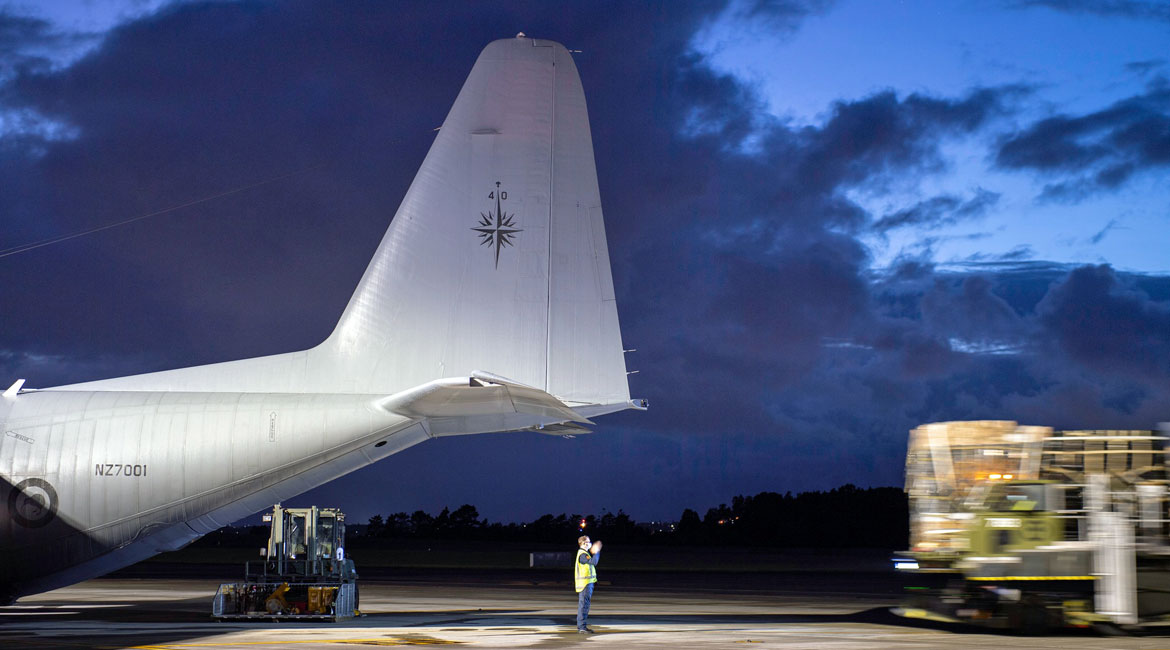
A Hercules aircraft and crew from No. 40 Squadron had a flying trip to Port Vila yesterday, 25th March, touching down to deliver essential supplies including personal protective equipment (PPE) for Vanuatu communities.
We were responding to a request from the government of Vanuatu for Covid-19 supplies.
There was around 7500kgs of freight on the aircraft. Supplies included medical oxygen equipment, PPE to support Vanuatu’s Covid-19 response, 500 boxes of rapid antigen tests, and also family hygiene kits, and mother and infant kits.
The supplies were coordinated by the New Zealand Ministry of Foreign Affairs and Trade. Our crew were happy to lend a helping hand in getting these to Port Vila, in support of our Pacific neighbour.
Royal New Zealand Air Force
We were responding to a request from the government of Vanuatu for Covid-19 supplies.
There was around 7500kgs of freight on the aircraft. Supplies included medical oxygen equipment, PPE to support Vanuatu’s Covid-19 response, 500 boxes of rapid antigen tests, and also family hygiene kits, and mother and infant kits.
The supplies were coordinated by the New Zealand Ministry of Foreign Affairs and Trade. Our crew were happy to lend a helping hand in getting these to Port Vila, in support of our Pacific neighbour.
Royal New Zealand Air Force

From: Richard English, King’s Lynn, Norfolk
Subject: The Duty-Free Run
HI Tony,
Whilst stationed at RAF Colerne, we were lucky enough to have many overseas detachments in our wonderful Handley Page Hastings and no resident customs on the airfield. But customs had to be called, I think from Lyneham, when we returned. Luckily the peri-track dipped nicely obscuring the aircraft from where the customs officers waited in one of the hangars. The aircraft briefly halted and the essential contraband was duly loaded into a waiting garret wagon.
I do remember smuggling in a bracelet cleverly hidden in a pack of Senior Service cigarettes, for my girlfriend. I gave up smoking and, sadly, Stephanie gave me up!
Regards,
Richard English
(Air Radar)
Subject: The Duty-Free Run
HI Tony,
Whilst stationed at RAF Colerne, we were lucky enough to have many overseas detachments in our wonderful Handley Page Hastings and no resident customs on the airfield. But customs had to be called, I think from Lyneham, when we returned. Luckily the peri-track dipped nicely obscuring the aircraft from where the customs officers waited in one of the hangars. The aircraft briefly halted and the essential contraband was duly loaded into a waiting garret wagon.
I do remember smuggling in a bracelet cleverly hidden in a pack of Senior Service cigarettes, for my girlfriend. I gave up smoking and, sadly, Stephanie gave me up!
Regards,
Richard English
(Air Radar)

From: David Bernard, Bicester, Oxon
Subject: Duty-free
Hello Tony,
Back in the days of the shiny fleet - of VC10s, Britannia and Belfasts, operating out of Brize Norton, the opportunity to travel “route” often presented itself to any of the movers based there. The relationship between the Brize movements staff, HM Customs and the ops staff at Upavon was excellent. It was therefore possible to scrounge ‘supernumerary' or 'Staff Crew’ status on flights to Akrotiri, Wildenrath and Gütersloh and occasionally, Luqa. Very occasionally it was possible to fly into Decimomannu, Sardinia, Italy.
In addition to the weekly scheduled flight on Fridays to Akrotiri there were frequent ‘trooping flights’ to the 2 Germany bases, often shuttling throughout the day. Akrotiri was popular for importing cases of oranges and the occasional demijohn of sherry or Kokinelli on the Friday VC10 schedule. Meanwhile, model railways were an excellent bargain from Decimomannu.
While serving with the RAF Movements School, a facility called Megadata was introduced throughout the movements world. This was a cheap comms system using SITA and one other system, without the tedium of writing out messages (signals) to be transmitted through the station COMCEN and slowly re-distributed by hand. Megadata was a forerunner of e-mail and it was even possible to hold a conversation between movers, which enabled ordering duty-free goodies and fruit, always declaring such imports through the Brize Customs team.
There were days when only Germany trooping flights took place, usually operating Britannias. It was often possible to fly out on the first sortie and return on the last flight of the day. It was therefore feasible to spend several hours at either Wildenrath and Gütersloh with enough time to visit the PSI shop, air terminal NAAFI or even go into town. One of the most popular bargains to be had from just outside RAF Gütersloh was the Sprick Cycle factory where it was possible to buy a fold-up cycle for just £12.
Attempts by the RAF Police (God bless ‘em) to stop the duty-free process failed, as did investigations by the local Customs ‘Collector’ since all these purchases were transparent and duty paid when required. There was the occasional Customs ‘Rummage Squad’, to carefully examine, mainly, charter flight aircraft operating through Brize. On one occasion, a Monarch Britannia was the subject of one search, which revealed massive quantities of duty-free cigarettes hidden behind the internal trim and fuselage insulation.
Best Wishes,
Dave
Subject: Duty-free
Hello Tony,
Back in the days of the shiny fleet - of VC10s, Britannia and Belfasts, operating out of Brize Norton, the opportunity to travel “route” often presented itself to any of the movers based there. The relationship between the Brize movements staff, HM Customs and the ops staff at Upavon was excellent. It was therefore possible to scrounge ‘supernumerary' or 'Staff Crew’ status on flights to Akrotiri, Wildenrath and Gütersloh and occasionally, Luqa. Very occasionally it was possible to fly into Decimomannu, Sardinia, Italy.
In addition to the weekly scheduled flight on Fridays to Akrotiri there were frequent ‘trooping flights’ to the 2 Germany bases, often shuttling throughout the day. Akrotiri was popular for importing cases of oranges and the occasional demijohn of sherry or Kokinelli on the Friday VC10 schedule. Meanwhile, model railways were an excellent bargain from Decimomannu.
While serving with the RAF Movements School, a facility called Megadata was introduced throughout the movements world. This was a cheap comms system using SITA and one other system, without the tedium of writing out messages (signals) to be transmitted through the station COMCEN and slowly re-distributed by hand. Megadata was a forerunner of e-mail and it was even possible to hold a conversation between movers, which enabled ordering duty-free goodies and fruit, always declaring such imports through the Brize Customs team.
There were days when only Germany trooping flights took place, usually operating Britannias. It was often possible to fly out on the first sortie and return on the last flight of the day. It was therefore feasible to spend several hours at either Wildenrath and Gütersloh with enough time to visit the PSI shop, air terminal NAAFI or even go into town. One of the most popular bargains to be had from just outside RAF Gütersloh was the Sprick Cycle factory where it was possible to buy a fold-up cycle for just £12.
Attempts by the RAF Police (God bless ‘em) to stop the duty-free process failed, as did investigations by the local Customs ‘Collector’ since all these purchases were transparent and duty paid when required. There was the occasional Customs ‘Rummage Squad’, to carefully examine, mainly, charter flight aircraft operating through Brize. On one occasion, a Monarch Britannia was the subject of one search, which revealed massive quantities of duty-free cigarettes hidden behind the internal trim and fuselage insulation.
Best Wishes,
Dave


From: Steve Harpum, Faringdon, Oxon
Subject: The Duty-Free Run
Hi Tony,
Not your usual DF story, but one that does stick in my memory was a trip that WO Tony Last and I did to RAF Germany by car in 1998/99 (not sure which).
I was the Surface Movements Officer at Brampton in those days and Tony did his best to keep me and the rest of the motley crew in line. One of Tony's responsibilities was the PFDS routes into Germany (that's the Priority Freight Distribution Service for your younger viewers), and so we felt it important to do a site visit to RAF Bruggen, among others. We took one of the Mobile Explosive Team's (MET) Ford Escort estate cars (no expense spared for the MET) and headed off through the Eurotunnel. I do recall my navigation was so off that we ended up driving right through the middle of at least one major Belgian city, but hey, life would be boring if we just went the easy way all the time, right?
A very successful visit took place and prior to returning home we, of course, loaded the wagon with the afore-mentioned DFs, for ourselves and several others back in the HQ. With the back seat down we were able to load a considerable quantity of beer, wine, spirits and of course smokes, covered them all with a rug and our coats and personal luggage and set off.
Tony was driving, and we hadn't gone far before he commented that the steering was a little on the light side, and we realised that we had loaded so much into the back of the car that the front wheels were only just making sufficient contact with the road to give us steering! Carefully, very carefully, we drove sedately and with no sudden manoeuvres back to the Channel, put on our most innocent faces for the customs officers on both sides and headed back to East Anglia. By the time we were around London, dusk, and then night, had fallen and on we drove - now dazzling low-flying owls and on-coming lorries with our headlights which, even on dipped beam, were doing a passible impression of the searchlights at the start of a 20th Century Fox Movie.
We made it home, quietly unpacked the car and returned it to the MT yard, and applied the old military axiom: "least said, soonest mended". I seem to recall the rear shock absorbers needed changing somewhat sooner on that vehicle than MT expected, but I'm sure that was just a coincidence!
Keep up the good work,
Best wishes,
Steve
Subject: The Duty-Free Run
Hi Tony,
Not your usual DF story, but one that does stick in my memory was a trip that WO Tony Last and I did to RAF Germany by car in 1998/99 (not sure which).
I was the Surface Movements Officer at Brampton in those days and Tony did his best to keep me and the rest of the motley crew in line. One of Tony's responsibilities was the PFDS routes into Germany (that's the Priority Freight Distribution Service for your younger viewers), and so we felt it important to do a site visit to RAF Bruggen, among others. We took one of the Mobile Explosive Team's (MET) Ford Escort estate cars (no expense spared for the MET) and headed off through the Eurotunnel. I do recall my navigation was so off that we ended up driving right through the middle of at least one major Belgian city, but hey, life would be boring if we just went the easy way all the time, right?
A very successful visit took place and prior to returning home we, of course, loaded the wagon with the afore-mentioned DFs, for ourselves and several others back in the HQ. With the back seat down we were able to load a considerable quantity of beer, wine, spirits and of course smokes, covered them all with a rug and our coats and personal luggage and set off.
Tony was driving, and we hadn't gone far before he commented that the steering was a little on the light side, and we realised that we had loaded so much into the back of the car that the front wheels were only just making sufficient contact with the road to give us steering! Carefully, very carefully, we drove sedately and with no sudden manoeuvres back to the Channel, put on our most innocent faces for the customs officers on both sides and headed back to East Anglia. By the time we were around London, dusk, and then night, had fallen and on we drove - now dazzling low-flying owls and on-coming lorries with our headlights which, even on dipped beam, were doing a passible impression of the searchlights at the start of a 20th Century Fox Movie.
We made it home, quietly unpacked the car and returned it to the MT yard, and applied the old military axiom: "least said, soonest mended". I seem to recall the rear shock absorbers needed changing somewhat sooner on that vehicle than MT expected, but I'm sure that was just a coincidence!
Keep up the good work,
Best wishes,
Steve



RAF Atlas resupplies UK troops during Exercise in Estonia
This week, a Royal Air Force Atlas aircraft completed a 9-hour round trip mission from the UK to conduct air drop re-supply in support of a UK Army training Exercise in Estonia.
Launching from the home of the Air Mobility Force, RAF Brize Norton, the aircraft crewed by members of 24, 30, 70 and 47(AD) Squadrons flew more than 1,000 miles to Nurmsi drop zone, Estonia, where they dropped six bundles of stores to resupply UK troops taking part on Exercise Dirt Track.
The aim was to conduct air-land integration with forces deployed on Operation CABRIT, while demonstrating the long-range insertion capabilities of Atlas as well as providing essential training to frontline Atlas crews newly qualified in this discipline. The mission highlighted the reach and payload of Atlas.
Flight Lieutenant 'JJ' Jackson, Aircraft Captain, 30 Squadron, said, "It is a fantastic privilege to be part of this mission and to see first-hand what Atlas and its crews are capable of. I am extremely grateful to our Estonian partners for working with us to make this happen. It is an incredibly exciting time to be part of the team charged to deliver the tactical capabilities of Atlas on operations; I am hugely excited about the opportunities that await as we enhance the scope and scale of such activities."
Wing Commander Patton, Officer Commanding 30 Squadron, said, "The delivery of long-range resupply by frontline crews is a major milestone for Atlas. The ability of this aircraft to deliver precision resupply at significant range from the UK - and to return home afterwards - offers enhanced and resilient force sustainment capabilities at a critical time for UK Defence. This has been a whole force effort that has been built on the professionalism and determination of those across the Atlas Force. Nevertheless, I am particularly proud that 30 Squadron – the world’s first aerial delivery Squadron - has been able to reopen its account in support of this Exercise."
Lieutenant Mason, Platoon Commander, C Company 1st Battalion The Royal Welsh, said, "When deployed forwards, integration between the land and air space is vital to equip personnel with supplies and essentials on the ground as quickly as possible. This Exercise provided a unique opportunity for soldiers currently deployed to Estonia, enhancing their ability to train alongside air assets in a challenging winter environment."
raf.mod.uk
Launching from the home of the Air Mobility Force, RAF Brize Norton, the aircraft crewed by members of 24, 30, 70 and 47(AD) Squadrons flew more than 1,000 miles to Nurmsi drop zone, Estonia, where they dropped six bundles of stores to resupply UK troops taking part on Exercise Dirt Track.
The aim was to conduct air-land integration with forces deployed on Operation CABRIT, while demonstrating the long-range insertion capabilities of Atlas as well as providing essential training to frontline Atlas crews newly qualified in this discipline. The mission highlighted the reach and payload of Atlas.
Flight Lieutenant 'JJ' Jackson, Aircraft Captain, 30 Squadron, said, "It is a fantastic privilege to be part of this mission and to see first-hand what Atlas and its crews are capable of. I am extremely grateful to our Estonian partners for working with us to make this happen. It is an incredibly exciting time to be part of the team charged to deliver the tactical capabilities of Atlas on operations; I am hugely excited about the opportunities that await as we enhance the scope and scale of such activities."
Wing Commander Patton, Officer Commanding 30 Squadron, said, "The delivery of long-range resupply by frontline crews is a major milestone for Atlas. The ability of this aircraft to deliver precision resupply at significant range from the UK - and to return home afterwards - offers enhanced and resilient force sustainment capabilities at a critical time for UK Defence. This has been a whole force effort that has been built on the professionalism and determination of those across the Atlas Force. Nevertheless, I am particularly proud that 30 Squadron – the world’s first aerial delivery Squadron - has been able to reopen its account in support of this Exercise."
Lieutenant Mason, Platoon Commander, C Company 1st Battalion The Royal Welsh, said, "When deployed forwards, integration between the land and air space is vital to equip personnel with supplies and essentials on the ground as quickly as possible. This Exercise provided a unique opportunity for soldiers currently deployed to Estonia, enhancing their ability to train alongside air assets in a challenging winter environment."
raf.mod.uk

From: Ian Berry, Eastleaze, Swindon, Wilts
Subject: The Duty-Free Run
Hi Tony,
There were several 'dodges' over the years to gain some DFs.
I was detached to Aldergrove twice whilst on MAMS and the local movers and ourselves would volunteer a man daily who would fly to Gutersloh, always on a Britannia, with a DF order for everyone. Customs were established at Aldergrove then as they came across from the Belfast Civil Airport. Once they had done their bit and returned we would remove the ill gotten gains from the front hold and share.
When I was stationed in Singapore at the Booking Centre the role of HMC at RAF Tengah was done by the local RAF Police who sadistically seemed to take great delight in the role! Still single at the time, I was 'volunteered' to do repeat of the Aldergrove trick. this time I flew 2,100 miles to RAF Gan to stay the night and place the order. A memorable trip as the SAMO at Gan was my old DAMO from El Adem days. The three young DAMOs consisted of my old team leader (Hidden) and two future senior officers on MAMS (Leonard & Brierley). The next day, suitably hungover I flew back with the contraband, easily transferred without the knowledge of the 'Snowdrops!'
MAMS on tasks always carry a sleeping bag (maggot). Some discovered that you could wrap up a bottle in the centre without any risk of breaking and hard to feel it's existence!
Yet another collection point for DFs was at Benbecula as most of the Rapier units were deployed via Wildenrath or Gutersloh. As these lifts sometimes took a few days, a volunteer would fly back to Germany each day and buy more booze.
Sometimes the quote "Rules are rules" or dealing with a Jobsworth just made me shake my head. Whilst stationed at RAF Akrotiri I did some 'horse trading' with my good friend Derek Coles who was stationed at RAF Wildenrath. During the deployment of a Phantom Squadron on APC to Cyprus we agreed to utilise one aircraft to do some 'International trading.' For our Squadron Christmas Party, on the ramp of one C130 was a considerable amount of German wine and liquers. On the return flight were many demijons of Kokinelli and Brandy, as well as crates of citrus fruit. Unfortunately, at my end, the aircraft was handled by a crowd of overkeen students from the Movements School. They promptly highlighted to their instructor that there was 'NO paperwork' for the freight on the ramp and he went straight to SBA Customs. I then got involved and was told by the customs chap that I would have to pay duty. All the bottles were stamped 'NAAFI GOODS - FOR HM FORCES' and we too were in a duty free area. The fee was eventually waived with the threat of withdrawing his invite from the party. The Movs School students and instructor were NOT invited!
Ian
Subject: The Duty-Free Run
Hi Tony,
There were several 'dodges' over the years to gain some DFs.
I was detached to Aldergrove twice whilst on MAMS and the local movers and ourselves would volunteer a man daily who would fly to Gutersloh, always on a Britannia, with a DF order for everyone. Customs were established at Aldergrove then as they came across from the Belfast Civil Airport. Once they had done their bit and returned we would remove the ill gotten gains from the front hold and share.
When I was stationed in Singapore at the Booking Centre the role of HMC at RAF Tengah was done by the local RAF Police who sadistically seemed to take great delight in the role! Still single at the time, I was 'volunteered' to do repeat of the Aldergrove trick. this time I flew 2,100 miles to RAF Gan to stay the night and place the order. A memorable trip as the SAMO at Gan was my old DAMO from El Adem days. The three young DAMOs consisted of my old team leader (Hidden) and two future senior officers on MAMS (Leonard & Brierley). The next day, suitably hungover I flew back with the contraband, easily transferred without the knowledge of the 'Snowdrops!'
MAMS on tasks always carry a sleeping bag (maggot). Some discovered that you could wrap up a bottle in the centre without any risk of breaking and hard to feel it's existence!
Yet another collection point for DFs was at Benbecula as most of the Rapier units were deployed via Wildenrath or Gutersloh. As these lifts sometimes took a few days, a volunteer would fly back to Germany each day and buy more booze.
Sometimes the quote "Rules are rules" or dealing with a Jobsworth just made me shake my head. Whilst stationed at RAF Akrotiri I did some 'horse trading' with my good friend Derek Coles who was stationed at RAF Wildenrath. During the deployment of a Phantom Squadron on APC to Cyprus we agreed to utilise one aircraft to do some 'International trading.' For our Squadron Christmas Party, on the ramp of one C130 was a considerable amount of German wine and liquers. On the return flight were many demijons of Kokinelli and Brandy, as well as crates of citrus fruit. Unfortunately, at my end, the aircraft was handled by a crowd of overkeen students from the Movements School. They promptly highlighted to their instructor that there was 'NO paperwork' for the freight on the ramp and he went straight to SBA Customs. I then got involved and was told by the customs chap that I would have to pay duty. All the bottles were stamped 'NAAFI GOODS - FOR HM FORCES' and we too were in a duty free area. The fee was eventually waived with the threat of withdrawing his invite from the party. The Movs School students and instructor were NOT invited!
Ian


From: Clive Price, Brecon
Subject: Booze and Baccy
Hi Tony,
Unlike aircrew, we always flew as passengers. The crew were allowed one bottle and 200 per month, but we lucky passengers had that every trip.
With FG Off John Dunne, team leader of Foxtrot team at that time, we went off to Germany on a Beverley to collect a full aircraft load of crates of champagne destined for various officers' messes Xmas parties. On our return, the HMC officer who had been sent to meet us was from Southampton Docks and aircraft were a total mystery to him. John took him to one side and told him that the first crate of 12 bottles off were his and would he like to put them in his car? We never saw him again!
Here's one more - We were night stopping in Bermuda and looking forward to a seven-hour flight home on a Britannia the following day. We decided to stay awake all night playing cards and we drank two bottles of DF vodka between us; we could sleep on the plane. We took off at 9am but I only managed to get one and a half hours shut-eye the entire flight. I was dead on my feet when we arrived back at Abingdon, I went to bed and slept for a full 14 hours!
Cheers!
Taff Price
F team (1966/70)
Subject: Booze and Baccy
Hi Tony,
Unlike aircrew, we always flew as passengers. The crew were allowed one bottle and 200 per month, but we lucky passengers had that every trip.
With FG Off John Dunne, team leader of Foxtrot team at that time, we went off to Germany on a Beverley to collect a full aircraft load of crates of champagne destined for various officers' messes Xmas parties. On our return, the HMC officer who had been sent to meet us was from Southampton Docks and aircraft were a total mystery to him. John took him to one side and told him that the first crate of 12 bottles off were his and would he like to put them in his car? We never saw him again!
Here's one more - We were night stopping in Bermuda and looking forward to a seven-hour flight home on a Britannia the following day. We decided to stay awake all night playing cards and we drank two bottles of DF vodka between us; we could sleep on the plane. We took off at 9am but I only managed to get one and a half hours shut-eye the entire flight. I was dead on my feet when we arrived back at Abingdon, I went to bed and slept for a full 14 hours!
Cheers!
Taff Price
F team (1966/70)


Lockheed Martin Takes Big Step Towards Winning Canada Jet Race
Two U.S. Air Force F-35 Lightning II aircraft arrive in Estonia
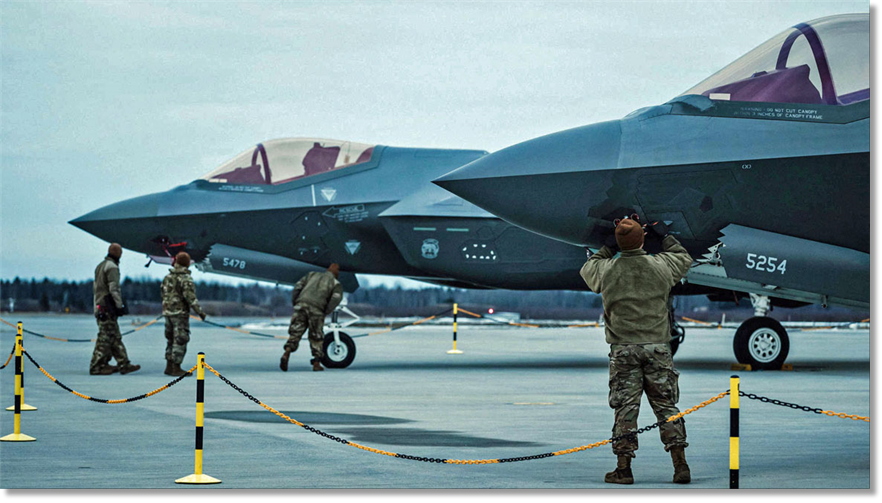
Canada has picked Lockheed Martin Corp as the preferred bidder to supply 88 new fighter jets, Procurement Minister Filomena Tassi said Monday, in a clear sign the U.S. company is set to win the multibillion-dollar contract. The move indicates Canada - under pressure to boost defense spending as the war in Ukraine rages - is closer to making a decision that has dragged out for more than a decade. "This announcement marks another important milestone in Canada's competitive process to purchase modern fighter jets for the Royal Canadian Air Force," Tassi said.
"The F-35 is in operational use by NORAD and NATO partners in missions around the globe. It has proven to be a mature, capable and interoperable aircraft and that is why we are moving to the finalization phase of this procurement," Defense Minister Anita Anand, speaking alongside Tassi, told reporters.
"We look forward to continuing our partnership with Canadian industry to deliver and sustain the F-35 for the Royal Canadian Air Force," Lockheed Martin Canada Chief Executive Lorraine Ben said in a statement.
msn.com
"The F-35 is in operational use by NORAD and NATO partners in missions around the globe. It has proven to be a mature, capable and interoperable aircraft and that is why we are moving to the finalization phase of this procurement," Defense Minister Anita Anand, speaking alongside Tassi, told reporters.
"We look forward to continuing our partnership with Canadian industry to deliver and sustain the F-35 for the Royal Canadian Air Force," Lockheed Martin Canada Chief Executive Lorraine Ben said in a statement.
msn.com

From: Don Hunter, Saint Quentin de Caplong
Subject: Where are they now?
Hi Tony,
Do you know if John Ilsley is still alive? I often think of our deep political debates down route!
All best wishes,
Don
Subject: Where are they now?
Hi Tony,
Do you know if John Ilsley is still alive? I often think of our deep political debates down route!
All best wishes,
Don

This Newsletter is Dedicated
to the Memories of:
Ben Casey (RAF)
Andy Funnell (RAF)
Waide Duncan (RAAF)
to the Memories of:
Ben Casey (RAF)
Andy Funnell (RAF)
Waide Duncan (RAAF)
Tony Gale
ukmamsoba@gmail.com
If you wish to make a donation,
you may use the above e-mail
through PayPal.
.
ukmamsoba@gmail.com
If you wish to make a donation,
you may use the above e-mail
through PayPal.
.

From: Ian Stacey, Nashville, IN
Subject: A question about a Facebook group
Hi Tony,
I have a question for you. What exactly is the facebook UKMAMS HAS RISEN AGAIN group?
It looks like it was started by a few disgruntled members of 1AMW who think [the squadron] has become too big and impersonal and who long for the return of individual MAMS teams.
Makes you realise how lucky we were in our day. We were like small family groups who stayed together and were entirely independent and self supporting when on assignment in the field. I guess everything grows into a large bureaucracy in the end.
Cheers
Ian
Subject: A question about a Facebook group
Hi Tony,
I have a question for you. What exactly is the facebook UKMAMS HAS RISEN AGAIN group?
It looks like it was started by a few disgruntled members of 1AMW who think [the squadron] has become too big and impersonal and who long for the return of individual MAMS teams.
Makes you realise how lucky we were in our day. We were like small family groups who stayed together and were entirely independent and self supporting when on assignment in the field. I guess everything grows into a large bureaucracy in the end.
Cheers
Ian

From: Tony Street, Buffalo, NY
Subject: My Big Trip (RTW)
My first “Big Trip” started on the 10th of April 1964.
I was a Loadmaster student on a Yukon/CC106 course at RCAF Station Trenton, Ontario, home of Air Transport Command. The Yukon was a four-engine aircraft modified from the Bristol Britannia with a 125 passenger/25,000 lb. capacity.
The course consisted of two crews of Pilots, Navigators, Radio Officers, Flight Engineers, Loadmasters and Flight Attendants. The courses were scheduled so all were finished on the same Friday so we all could go on the flying check ride phase. On this course we were all taught how to do things “According to the book”. The flying phase was to let us know how things worked in the “Real World,” leading to our mantra, “One must have a plan so one knows how much deviations one can make without fear of punishment, death or imprisonment.”
The two student crews were to work together to plan the around the world itinerary, rations needed, security clearances, visas, inoculations, facilities available at our planned stops, notifications to the Canadian Embassies en-route and a myriad of other stuff. When the instructor crew approved the planning, we were off.
We departed Trenton on the above date, our first stop was our base at Marville, France, 11 hours later where we stayed overnight. As Marville was an established base there was nothing exiting about it except the duty-free booze and cigarettes. A 40 ouncer of Canadian Club Whiskey was $5.00 U.S. and ciggies $1.00 a carton. We stocked up with enough to last us for the 14 days ahead.
Our first stop after Marville was RAF Station Khormaksar in Aden, Yemen, which we reached after an 11-hour flight.
The RAF chaps met the aircraft and took us to the transit hotel, Seaview, which gave us a stunning view of the Gulf of Aden. The hotel accommodations were barrack style with about 10 beds in each room, the walls of which were the color of a faded orange. There were no windows or doors. Instead, there were slats that allowed air to waft through the place. However, there was a pervading stink of some sort, which will be explained later.
The first order of business was a drink. We popped a 40 of C.C. and filled some dirty glasses we found in the houseboy’s closet and imbibed. Ice was needed.
The houseboy appeared suddenly, met us with a friendly smile and asked us if we needed anything. One of the lads explained our ice requirement and was told there was none available in the hotel. But the houseboy could get some at a local facility. We gave him some money and away he went. We were able to track his progress through the crowded market from our third-floor veranda and saw him disappear around a corner. We sat in the warm summer breeze enjoying warm whisky then the wind changed and the aforementioned smell became stronger. We investigated.
Subject: My Big Trip (RTW)
My first “Big Trip” started on the 10th of April 1964.
I was a Loadmaster student on a Yukon/CC106 course at RCAF Station Trenton, Ontario, home of Air Transport Command. The Yukon was a four-engine aircraft modified from the Bristol Britannia with a 125 passenger/25,000 lb. capacity.
The course consisted of two crews of Pilots, Navigators, Radio Officers, Flight Engineers, Loadmasters and Flight Attendants. The courses were scheduled so all were finished on the same Friday so we all could go on the flying check ride phase. On this course we were all taught how to do things “According to the book”. The flying phase was to let us know how things worked in the “Real World,” leading to our mantra, “One must have a plan so one knows how much deviations one can make without fear of punishment, death or imprisonment.”
The two student crews were to work together to plan the around the world itinerary, rations needed, security clearances, visas, inoculations, facilities available at our planned stops, notifications to the Canadian Embassies en-route and a myriad of other stuff. When the instructor crew approved the planning, we were off.
We departed Trenton on the above date, our first stop was our base at Marville, France, 11 hours later where we stayed overnight. As Marville was an established base there was nothing exiting about it except the duty-free booze and cigarettes. A 40 ouncer of Canadian Club Whiskey was $5.00 U.S. and ciggies $1.00 a carton. We stocked up with enough to last us for the 14 days ahead.
Our first stop after Marville was RAF Station Khormaksar in Aden, Yemen, which we reached after an 11-hour flight.
The RAF chaps met the aircraft and took us to the transit hotel, Seaview, which gave us a stunning view of the Gulf of Aden. The hotel accommodations were barrack style with about 10 beds in each room, the walls of which were the color of a faded orange. There were no windows or doors. Instead, there were slats that allowed air to waft through the place. However, there was a pervading stink of some sort, which will be explained later.
The first order of business was a drink. We popped a 40 of C.C. and filled some dirty glasses we found in the houseboy’s closet and imbibed. Ice was needed.
The houseboy appeared suddenly, met us with a friendly smile and asked us if we needed anything. One of the lads explained our ice requirement and was told there was none available in the hotel. But the houseboy could get some at a local facility. We gave him some money and away he went. We were able to track his progress through the crowded market from our third-floor veranda and saw him disappear around a corner. We sat in the warm summer breeze enjoying warm whisky then the wind changed and the aforementioned smell became stronger. We investigated.


We went to the end of the building and looked over the low wall and saw below us a bustling goat market. There must have been at least 50-60 goats of all sorts and by the shouting and haggling, they were being bought and sold at a rapid pace, stuffed into and dragged out of trucks and car trunks at a great rate.
Our attention was then drawn to men making shepherd’s hooks. There were several men sitting on the ground, leaning against a wall, with buckets of warm goat excrement between their legs.
Each man had a wooden stick about five feet long with one end in the bucket. As they chatted amongst themselves, they were taking the warm liquid and stroking it upward, eventually penetrating and softening the stick. During this process, the rod softened and became pliable enough to be bent, eventually becoming a crook. The process took hours.
That night we were guests of the RAF at a local restaurant where we ate our fill of local lamb dishes and drank plenty of imported English beer.
Morning dawned and a couple of us decided to take in some of the local scenery. Off we went. We had only walked about a block or so when the heat and hangovers started to get to us. As we were bemoaning our plight, we encountered an astounding and sickening sight.
Behind us, we heard a feeble voice pleading, …something. “Alms” maybe? Turning, we saw a lad, about 10 or 11, with no limbs below his knees or elbows. His stumps were stuck into leather cups, like the ones that gamblers use for rolling dice. To keep them in place, there were strings over his shoulders and hips, much as Canadians would use to keep kids from losing their mittens. Around his neck was a tin can, hanging, a receptacle for whatever money he could beg.
Not knowing how to handle the situation, we sought refuge in a nearby bar. Not to be dismissed, the lad followed us, raised himself up on his legs and banged on the glass door. We asked the bartender for help. In quick order we had a whip round and were able to fill the kid’s tin can. He cried. I felt like crying.
Having had enough (or having been traumatized) of the local culture, we filled ourselves with beer and snacks and returned to the hotel. The next morning, we would depart for the next top, RAF Station Gan.
After a pleasant seven-hour flight from Aden, we arrived at RAF Station Gan. It’s situated on Addu Atoll, the southernmost atoll in the Maldives, and at the time was used as a refueling stop for RAF flights to and from the Far East. We arrived just as the local RAF lads were starting Happy Hour, and it didn’t take us long to get up to speed.
As Addu is situated almost on the equator, it becomes unbearably hot during the day, thus the workday starts before sunrise, about four am and ends around 11am, once it has become too hot (at least for RAF and RCAF members from northern climes) to work.
Our attention was then drawn to men making shepherd’s hooks. There were several men sitting on the ground, leaning against a wall, with buckets of warm goat excrement between their legs.
Each man had a wooden stick about five feet long with one end in the bucket. As they chatted amongst themselves, they were taking the warm liquid and stroking it upward, eventually penetrating and softening the stick. During this process, the rod softened and became pliable enough to be bent, eventually becoming a crook. The process took hours.
That night we were guests of the RAF at a local restaurant where we ate our fill of local lamb dishes and drank plenty of imported English beer.
Morning dawned and a couple of us decided to take in some of the local scenery. Off we went. We had only walked about a block or so when the heat and hangovers started to get to us. As we were bemoaning our plight, we encountered an astounding and sickening sight.
Behind us, we heard a feeble voice pleading, …something. “Alms” maybe? Turning, we saw a lad, about 10 or 11, with no limbs below his knees or elbows. His stumps were stuck into leather cups, like the ones that gamblers use for rolling dice. To keep them in place, there were strings over his shoulders and hips, much as Canadians would use to keep kids from losing their mittens. Around his neck was a tin can, hanging, a receptacle for whatever money he could beg.
Not knowing how to handle the situation, we sought refuge in a nearby bar. Not to be dismissed, the lad followed us, raised himself up on his legs and banged on the glass door. We asked the bartender for help. In quick order we had a whip round and were able to fill the kid’s tin can. He cried. I felt like crying.
Having had enough (or having been traumatized) of the local culture, we filled ourselves with beer and snacks and returned to the hotel. The next morning, we would depart for the next top, RAF Station Gan.
After a pleasant seven-hour flight from Aden, we arrived at RAF Station Gan. It’s situated on Addu Atoll, the southernmost atoll in the Maldives, and at the time was used as a refueling stop for RAF flights to and from the Far East. We arrived just as the local RAF lads were starting Happy Hour, and it didn’t take us long to get up to speed.
As Addu is situated almost on the equator, it becomes unbearably hot during the day, thus the workday starts before sunrise, about four am and ends around 11am, once it has become too hot (at least for RAF and RCAF members from northern climes) to work.
At sundown, one of the loadmaster students, Dave McGrath, who was to become a “legend in his own time… or his own mind” (he was later to become a thorn in my side when, some years in the future, he worked for me), decided he wanted to go swimming with the RAF guys. He was advised to wear sneakers to walk over the coral he had to traverse to get to the sandy bottom. But halfway there, he decided to dive and swim underwater for the remaining distance. He tore up his chest on the coral. This required medical attention. As the party at the base had lasted until dawn, the base was already waking up as we took Dave to the clinic.
The island, Gan, is on an atoll surrounded by a dozen others island where the local workers lived. Many commuted by boat to their jobs on the island. As RAF employees, local people were entitled to medical benefits. A few were sitting on the clinic porch when we arrived, where the facility was made out of thatch and lumber from the local trees and was of an impressive size.
As soon as the Corporal medic saw Dave, he was ushered in ahead of the natives as “Coral Burns” become infected rapidly. He ordered Dave to take off his ripped tee shirt, and as Dave was distracted with peeling that off, the Corporal turned his back, opened a cupboard and poured a substantial amount of iodine onto a large battle dressing. At this point, Dave had his arms in the air, taking off his shirt. The Corporal (a cunning devil) spun quickly around and smeared Dave’s chest with the iodine. It took about three seconds before the pain arrived.
Dave was a large guy, about 220 lbs. and 6’3” tall. He leapt screaming into the air and landed on the wooden floor which shook the whole structure to its foundations. The screaming and jumping scared many of the waiting locals from the porch, who ran off towards their canoes, perhaps never to return to the clinic. It didn’t take long before the whole base knew what had happened. Most were amazed at the man’s stupidity.
When traveling in this part of the world, we wore “TU’s” (Tropical uniforms), i.e., Khaki shorts and shirts with open collars and no tie.
When we reported to Flight Ops the next morning for our flight to Saigon, Dave was wearing his shirt buttoned up with a tie. However, there was no hiding the Iodine stain just under his Adam’s Apple.
On board we had a load of medical supplies for the Canadian mission in Saigon. Due to the threat of impending war (everyone seemed to know that the Americans were about to join the fight any day against the North Vietnamese), we were also tasked with evacuating about a dozen Saigon-based “non-essential” personnel to Hong Kong, where they would wait for other transportation back to Canada. During our brief stay, about six hours, you could hear gunfire around the city, lending credence to the belief that a full-blown American war might be looming. The aircrew had a very nice lunch in the airport restaurant where our host, a doctor and senior medical officer of the peacekeeping detachment, briefed us on details of their mission.
One of our crew asked the doctor why we were bringing in medical supplies, when evacuation of most Canadians was imminent. He explained that our cargo was mainly penicillin, and some of the troops needed healthy doses of it to deal with a common malady arising from their local social interactions. This would have them cured before they got home. He added that some of the guys were on their second and third maladies.
The island, Gan, is on an atoll surrounded by a dozen others island where the local workers lived. Many commuted by boat to their jobs on the island. As RAF employees, local people were entitled to medical benefits. A few were sitting on the clinic porch when we arrived, where the facility was made out of thatch and lumber from the local trees and was of an impressive size.
As soon as the Corporal medic saw Dave, he was ushered in ahead of the natives as “Coral Burns” become infected rapidly. He ordered Dave to take off his ripped tee shirt, and as Dave was distracted with peeling that off, the Corporal turned his back, opened a cupboard and poured a substantial amount of iodine onto a large battle dressing. At this point, Dave had his arms in the air, taking off his shirt. The Corporal (a cunning devil) spun quickly around and smeared Dave’s chest with the iodine. It took about three seconds before the pain arrived.
Dave was a large guy, about 220 lbs. and 6’3” tall. He leapt screaming into the air and landed on the wooden floor which shook the whole structure to its foundations. The screaming and jumping scared many of the waiting locals from the porch, who ran off towards their canoes, perhaps never to return to the clinic. It didn’t take long before the whole base knew what had happened. Most were amazed at the man’s stupidity.
When traveling in this part of the world, we wore “TU’s” (Tropical uniforms), i.e., Khaki shorts and shirts with open collars and no tie.
When we reported to Flight Ops the next morning for our flight to Saigon, Dave was wearing his shirt buttoned up with a tie. However, there was no hiding the Iodine stain just under his Adam’s Apple.
On board we had a load of medical supplies for the Canadian mission in Saigon. Due to the threat of impending war (everyone seemed to know that the Americans were about to join the fight any day against the North Vietnamese), we were also tasked with evacuating about a dozen Saigon-based “non-essential” personnel to Hong Kong, where they would wait for other transportation back to Canada. During our brief stay, about six hours, you could hear gunfire around the city, lending credence to the belief that a full-blown American war might be looming. The aircrew had a very nice lunch in the airport restaurant where our host, a doctor and senior medical officer of the peacekeeping detachment, briefed us on details of their mission.
One of our crew asked the doctor why we were bringing in medical supplies, when evacuation of most Canadians was imminent. He explained that our cargo was mainly penicillin, and some of the troops needed healthy doses of it to deal with a common malady arising from their local social interactions. This would have them cured before they got home. He added that some of the guys were on their second and third maladies.
Our next stop was Hong Kong (Fragrant Harbor) and was the most anticipated of all our destinations. On our arrival, we were confused to find ourselves in Kowloon on the mainland and that Hong Kong was on island just offshore.
Our trip to the hotel was exiting as we absorbed the sights and smells of “The Orient” as it was known back then. We had truly arrived. The smell, noise and bustle of our surroundings was contagious and, in spite of our long day, we were spring-loaded to explore, and so we did. After checking in and unpacking, we forwent the usual debriefing that was usually having a few drinks in whosever room turn it was to host. When we gathered in the lobby we inquired of the concierge as where to go first. He gave us a map and pointed out Nathan Road, just a short rickshaw ride away.
I should point out here that although we had about 30 crew aboard, we didn’t all travel together during crew rests. The pilots hung with pilots, Navs with Navs etc. and within these groups friendships grew so we traveled pretty much in twos and threes. It was not uncommon not to see any other crew members until our next departure.
Arriving at Nathan Road, we found ourselves in a parallel universe. It was nothing as imagined. At the time, (“Honkers,” as the Brits labeled it), had become an R&R destination for troops serving in Vietnam. This resulted in crowds of GIs packing the place with every alternate store being a bar, brothel or tailor shop.
Our threesome headed into one of the bars and were immediately beset by “You buy me good luck drink and I love you long time” girls. Once I had bought one of them an expensive drink, we became accepted customers in spite of not taking her up on the other option. This was borne out when we went to the next bar up the road. We were told by the manageress, “You number 10, no good here, you go back to your bar.” Chinese Gongs, maybe?
The next day we got off to a good start. After a breakfast from a street food stall (We couldn’t afford to eat in the hotel on our $7.50 per diem allowance), we rickshawed to the Star Ferry for a 15-minute boat trip to Hong Kong Island. The ferry was packed with both locals going back and forth to work and us tourists who were constantly elbowed and nudged by Chinese (part of living in a crowded environment, I guess). I kept one hand on my wallet, as you never know.
After wandering around the waterfront, we stopped for a coffee at a cafe that gave us a great view of the many junks plying their way back and forth. We commented on the freshness of the air in, at the time, the busiest port in the word.
To get the top of “The Peak,” we took the funicular railway that carried again, the locals, with their elbows, and us tourists. The tram stopped several times on the way up (and down) when someone rang a bell, or waved it down.
From the peak, we had a fantastic view as we had lunch at a restaurant that overhung the mountain side, gulp. The Peak’s population was Hong Kong’s “Rich and Famous,” as indicated by the price of the coffee.
Our trip to the hotel was exiting as we absorbed the sights and smells of “The Orient” as it was known back then. We had truly arrived. The smell, noise and bustle of our surroundings was contagious and, in spite of our long day, we were spring-loaded to explore, and so we did. After checking in and unpacking, we forwent the usual debriefing that was usually having a few drinks in whosever room turn it was to host. When we gathered in the lobby we inquired of the concierge as where to go first. He gave us a map and pointed out Nathan Road, just a short rickshaw ride away.
I should point out here that although we had about 30 crew aboard, we didn’t all travel together during crew rests. The pilots hung with pilots, Navs with Navs etc. and within these groups friendships grew so we traveled pretty much in twos and threes. It was not uncommon not to see any other crew members until our next departure.
Arriving at Nathan Road, we found ourselves in a parallel universe. It was nothing as imagined. At the time, (“Honkers,” as the Brits labeled it), had become an R&R destination for troops serving in Vietnam. This resulted in crowds of GIs packing the place with every alternate store being a bar, brothel or tailor shop.
Our threesome headed into one of the bars and were immediately beset by “You buy me good luck drink and I love you long time” girls. Once I had bought one of them an expensive drink, we became accepted customers in spite of not taking her up on the other option. This was borne out when we went to the next bar up the road. We were told by the manageress, “You number 10, no good here, you go back to your bar.” Chinese Gongs, maybe?
The next day we got off to a good start. After a breakfast from a street food stall (We couldn’t afford to eat in the hotel on our $7.50 per diem allowance), we rickshawed to the Star Ferry for a 15-minute boat trip to Hong Kong Island. The ferry was packed with both locals going back and forth to work and us tourists who were constantly elbowed and nudged by Chinese (part of living in a crowded environment, I guess). I kept one hand on my wallet, as you never know.
After wandering around the waterfront, we stopped for a coffee at a cafe that gave us a great view of the many junks plying their way back and forth. We commented on the freshness of the air in, at the time, the busiest port in the word.
To get the top of “The Peak,” we took the funicular railway that carried again, the locals, with their elbows, and us tourists. The tram stopped several times on the way up (and down) when someone rang a bell, or waved it down.
From the peak, we had a fantastic view as we had lunch at a restaurant that overhung the mountain side, gulp. The Peak’s population was Hong Kong’s “Rich and Famous,” as indicated by the price of the coffee.
Back in Kowloon, we wandered the streets in awe of our surroundings until it was Happy Hour and the usual events of the evening. The next morning, we were all gathered in the lobby waiting for the busses while the Radio Officer was checking us out. (One of his duties was looking after all the financial aspects of the trip as he had not much else to do.) The lobby was busy with people from many nations also doing the same thing.
While reviewing the invoice, he addressed our bunch (remember, we were +/- 30 in number), in his outdoor voice, “Who was in rooms 1042, 1040 and 950? We’ve been charged for double occupancy!” This drew knowing smiles from people of many nations. The Staff Captain leapt into the breach, so to speak and in his indoor voice instructed the RO to “Shut up! Pay the bill and we’ll sort it in the air.” Again, each floor’s houseboy had earned their keep. (On a subsequent trip, after many complaints from the Accounts Section regarding our expenses, we took along the Senior Accounts Officer and paid his personal expenses out of our squadron slush fund. We never heard another peep from them.)
Onto the busses and maybe an adventure at our next stop, Wake Island. I was able to stand behind the pilot on our approach to Wake and was stunned by the small speck of the atoll in the distance. I had been told it was 12.5 square miles and the airbase took up one quarter of it. Due to the time change it’s where the USA day starts. Located in the mid Pacific Ocean, it’s the most remote place on earth. During WWII it was a strategic staging base for a/c transiting to Asia and has been an American possession since the 1800s. As we got closer, I could see the crystal-clear water and marine life sparkling in the sun. I could see that it was an atoll covered in sand and palm trees.
After landing I was billeted in a wooden WWII barracks that had been modernized to some degree. And, as a considerate move, beer machines were installed beside the Coke machines at the end of each hall. We were only there for two nights and spent the intervening day swimming in a cove that had shark netting across its mouth to keep them out. Still, it was a little unnerving.
After lunch and a nap, me and a couple of guys sat outside drinking beer and watched the Goony Birds arrive. (They are named after the C47 a WWII aircraft, clumsy while on the ground). There were hundreds of birds nesting right beside the barracks and as far as I could see. Their nests are made of little mounds of sand, feathers and palm fronds and are concave. The eggs are laid in there with the mother never leaving until they are fledged. Their arrival is a comical thing to see. These birds are a species of albatross and are known to go to sea for years without touching land, they scoop their food from the ocean’s surface. They have been seen at altitudes of 10,000 feet and one was tracked circling the earth in 46 days. As a result of this environment, they never learned to carry out a landing, but they must do so to return and breed. They arrive at about 5–10-minute intervals and I laughed and blew beer out of my nose as they landed. They are big birds with a six-foot wingspan and weight about 30 pounds.
When they land, they are traveling about 10 miles an hour and when their feet touch down, they crash and roll while shedding feathers and screaming loudly as they knock the ladies from their nests, causing yet another screaming session. This goes on all day and after several hours was driving me insane. In the evening I sat with a couple of guys and watched the sun go down as we emptied the beer machine just before bed time.
While reviewing the invoice, he addressed our bunch (remember, we were +/- 30 in number), in his outdoor voice, “Who was in rooms 1042, 1040 and 950? We’ve been charged for double occupancy!” This drew knowing smiles from people of many nations. The Staff Captain leapt into the breach, so to speak and in his indoor voice instructed the RO to “Shut up! Pay the bill and we’ll sort it in the air.” Again, each floor’s houseboy had earned their keep. (On a subsequent trip, after many complaints from the Accounts Section regarding our expenses, we took along the Senior Accounts Officer and paid his personal expenses out of our squadron slush fund. We never heard another peep from them.)
Onto the busses and maybe an adventure at our next stop, Wake Island. I was able to stand behind the pilot on our approach to Wake and was stunned by the small speck of the atoll in the distance. I had been told it was 12.5 square miles and the airbase took up one quarter of it. Due to the time change it’s where the USA day starts. Located in the mid Pacific Ocean, it’s the most remote place on earth. During WWII it was a strategic staging base for a/c transiting to Asia and has been an American possession since the 1800s. As we got closer, I could see the crystal-clear water and marine life sparkling in the sun. I could see that it was an atoll covered in sand and palm trees.
After landing I was billeted in a wooden WWII barracks that had been modernized to some degree. And, as a considerate move, beer machines were installed beside the Coke machines at the end of each hall. We were only there for two nights and spent the intervening day swimming in a cove that had shark netting across its mouth to keep them out. Still, it was a little unnerving.
After lunch and a nap, me and a couple of guys sat outside drinking beer and watched the Goony Birds arrive. (They are named after the C47 a WWII aircraft, clumsy while on the ground). There were hundreds of birds nesting right beside the barracks and as far as I could see. Their nests are made of little mounds of sand, feathers and palm fronds and are concave. The eggs are laid in there with the mother never leaving until they are fledged. Their arrival is a comical thing to see. These birds are a species of albatross and are known to go to sea for years without touching land, they scoop their food from the ocean’s surface. They have been seen at altitudes of 10,000 feet and one was tracked circling the earth in 46 days. As a result of this environment, they never learned to carry out a landing, but they must do so to return and breed. They arrive at about 5–10-minute intervals and I laughed and blew beer out of my nose as they landed. They are big birds with a six-foot wingspan and weight about 30 pounds.
When they land, they are traveling about 10 miles an hour and when their feet touch down, they crash and roll while shedding feathers and screaming loudly as they knock the ladies from their nests, causing yet another screaming session. This goes on all day and after several hours was driving me insane. In the evening I sat with a couple of guys and watched the sun go down as we emptied the beer machine just before bed time.
We left the next morning for Hawaii. After landing at USAF Base, Hickam Field, and undergoing a perfunctory Custom & Immigration inspection, we were bussed to the Reef Tower Hotel, within walking distance of Waikiki Beach. From my hotel balcony, I could clearly see Diamond Head and some of the other islands. The fresh air was welcome after spending hours in a smelly airplane.
Waikiki Beach was also an R&R destination for US troops and close enough to the US that their wives and girlfriends could meet up. That afternoon, I was allowed access the beach facilities by showing my ID card. I could sign out towels, surf boards umbrellas etc. I tried surfing and almost stood up for a millisecond. Gave it up as a bad job and told myself that I didn’t have time to learn how. Sat on the beach and drank beer with friends. The evening was given to exploring the nightlife available to the troops. They were many and varied.
The next day, I and a few others, rented scooters and rode around the island and stopped for lunch at a seaside restaurant where, guess what, seafood was the specialty. Our next stop was the USS Arizona Memorial in Pearl Harbor where the US Navy provided boats to take folks for a five-minute ride out to the memorial. Below me, about 1,700 crewmen lay dead in the sunken battleship. An extremely emotional experience. The wreck still leaked oil after all these years. On our arrival, we had advised the Ops peeps that we had seats available for any R&R troops that wanted to go to Mccellan AFB, California, our next stop.
On our departure there were two young buzz-cut army troops about 19-20 years old who would travel with us on the six hour or so flight. They were wearing their Dress Blues sporting a few battle ribbons and were very quiet. Our trainee stewardesses (now Flight Attendants) took the guys under their collective wings and gave them seats up front so they could become part of the goings on. For the entire trip they sat and stared ahead in what is known as “The 1,000-yard stare.” refused meals but had an occasional cup of coffee. On our arrival, they mumbled muted thanks as they deplaned with their PTSD.
We had an uneventful overnight crew rest and departed the next morning for home.
Waikiki Beach was also an R&R destination for US troops and close enough to the US that their wives and girlfriends could meet up. That afternoon, I was allowed access the beach facilities by showing my ID card. I could sign out towels, surf boards umbrellas etc. I tried surfing and almost stood up for a millisecond. Gave it up as a bad job and told myself that I didn’t have time to learn how. Sat on the beach and drank beer with friends. The evening was given to exploring the nightlife available to the troops. They were many and varied.
The next day, I and a few others, rented scooters and rode around the island and stopped for lunch at a seaside restaurant where, guess what, seafood was the specialty. Our next stop was the USS Arizona Memorial in Pearl Harbor where the US Navy provided boats to take folks for a five-minute ride out to the memorial. Below me, about 1,700 crewmen lay dead in the sunken battleship. An extremely emotional experience. The wreck still leaked oil after all these years. On our arrival, we had advised the Ops peeps that we had seats available for any R&R troops that wanted to go to Mccellan AFB, California, our next stop.
On our departure there were two young buzz-cut army troops about 19-20 years old who would travel with us on the six hour or so flight. They were wearing their Dress Blues sporting a few battle ribbons and were very quiet. Our trainee stewardesses (now Flight Attendants) took the guys under their collective wings and gave them seats up front so they could become part of the goings on. For the entire trip they sat and stared ahead in what is known as “The 1,000-yard stare.” refused meals but had an occasional cup of coffee. On our arrival, they mumbled muted thanks as they deplaned with their PTSD.
We had an uneventful overnight crew rest and departed the next morning for home.



